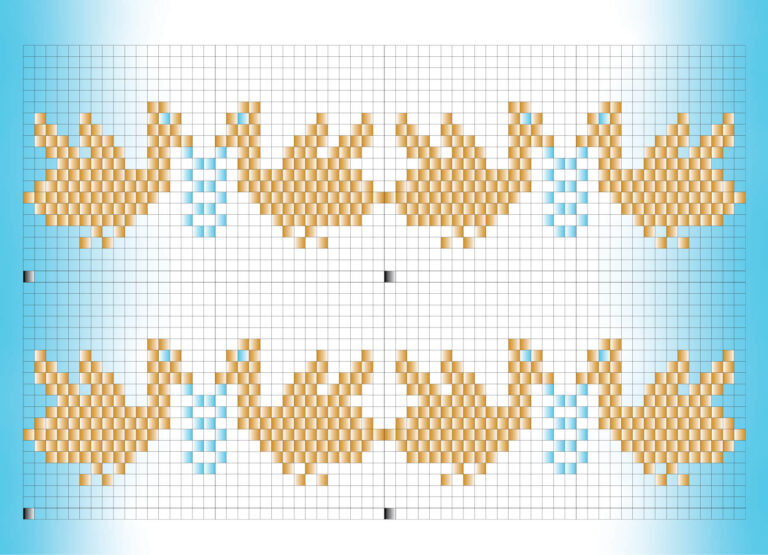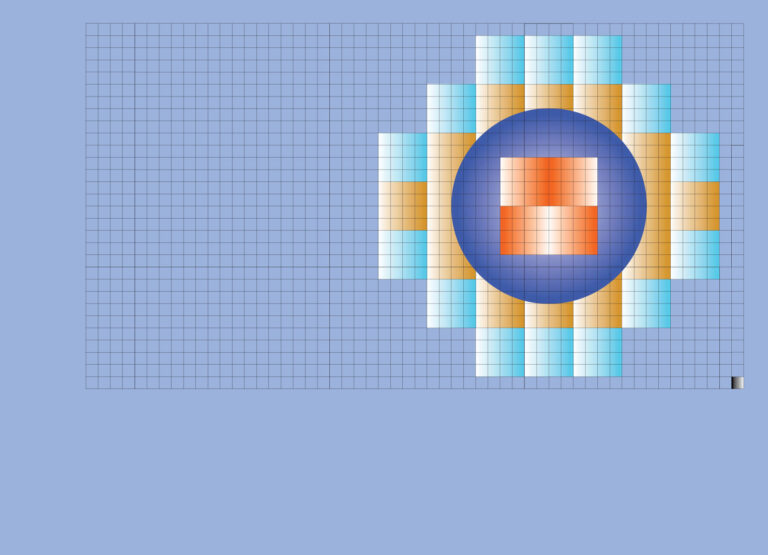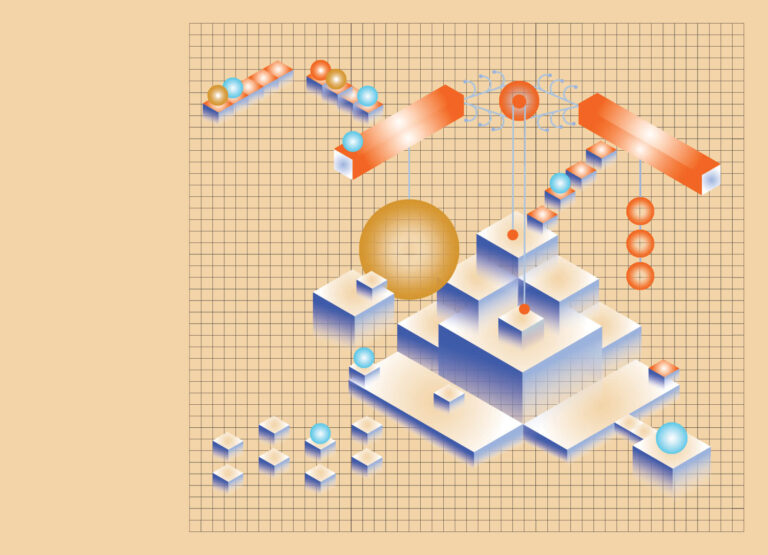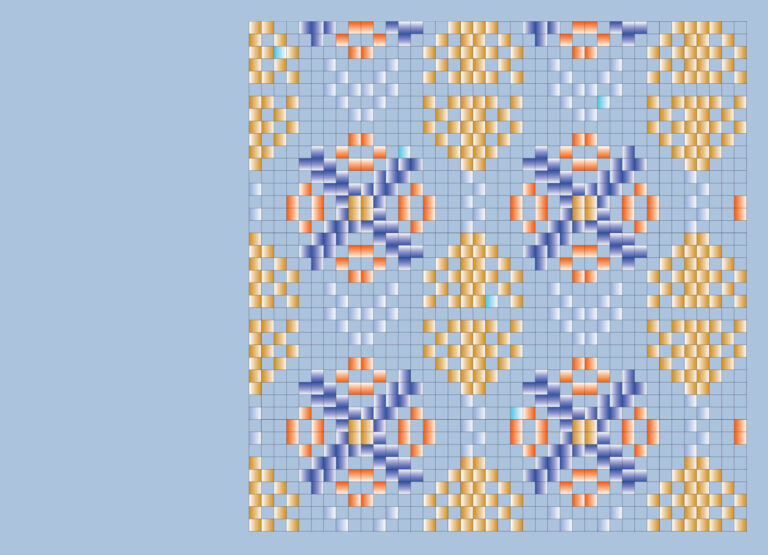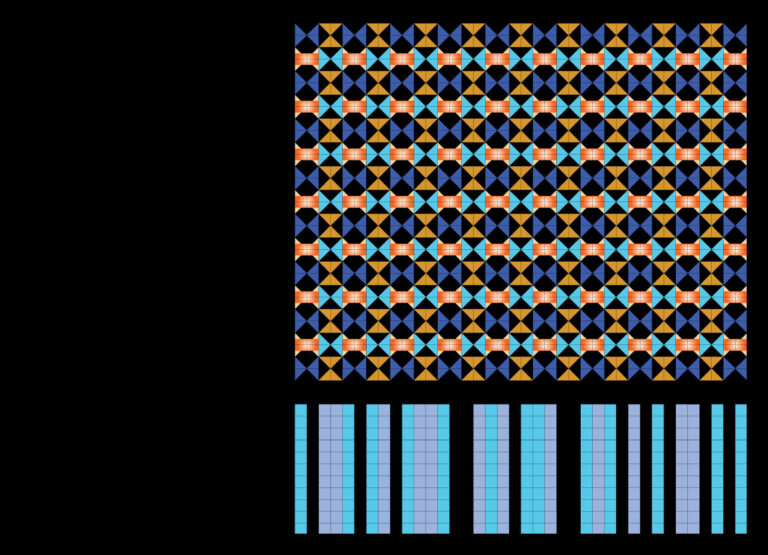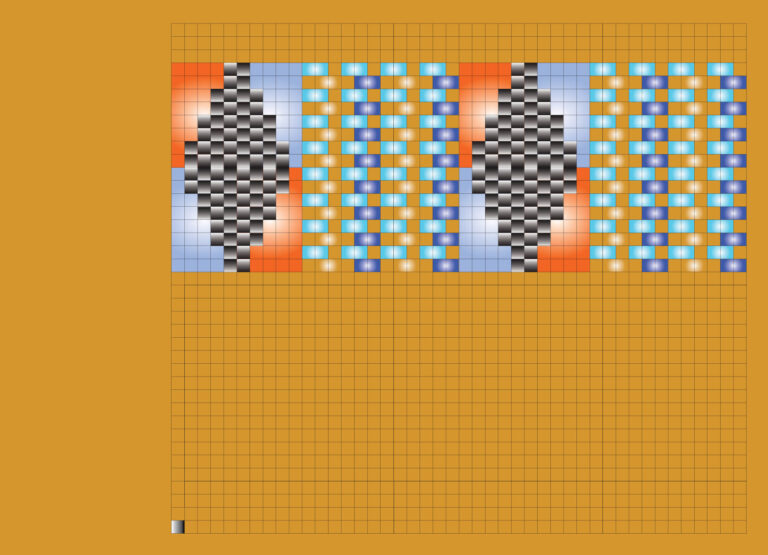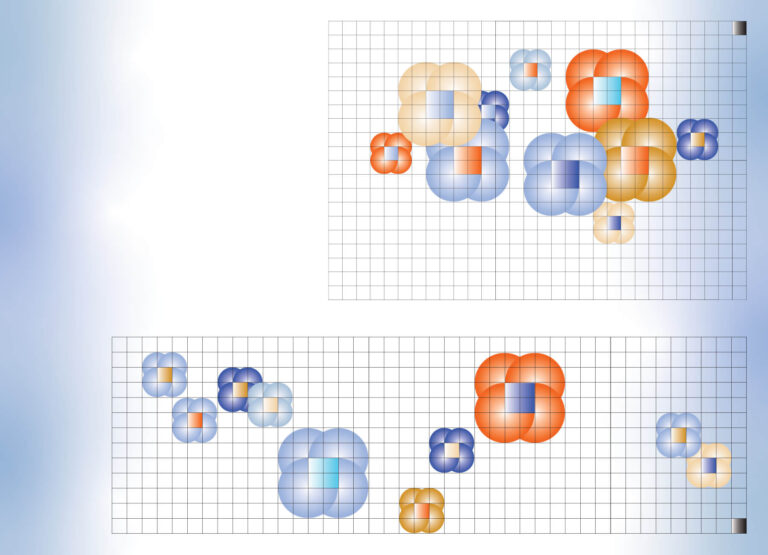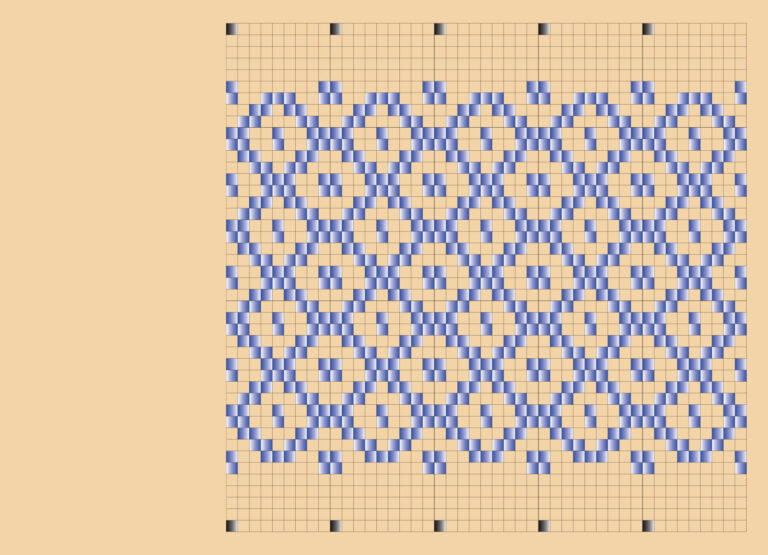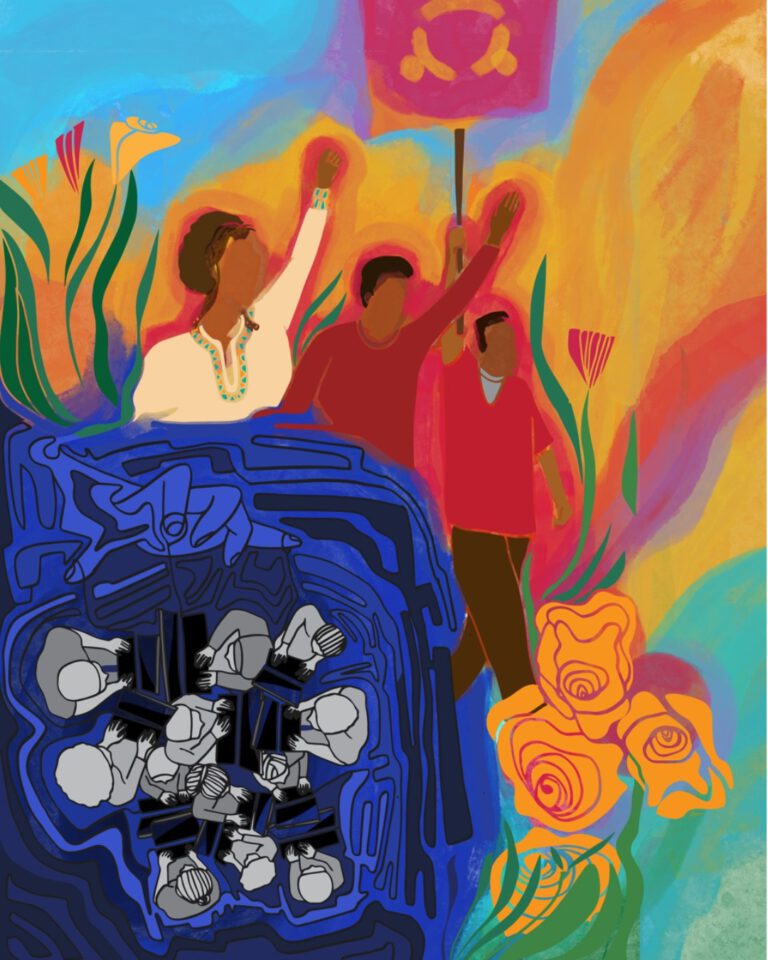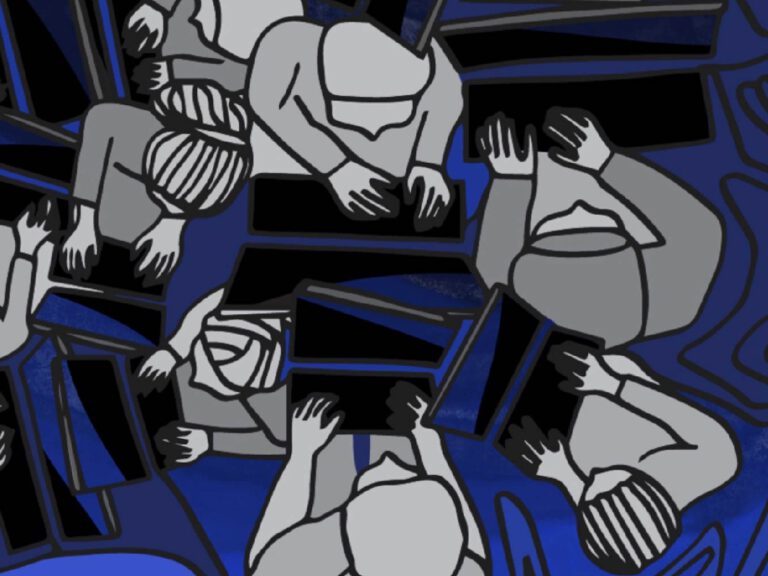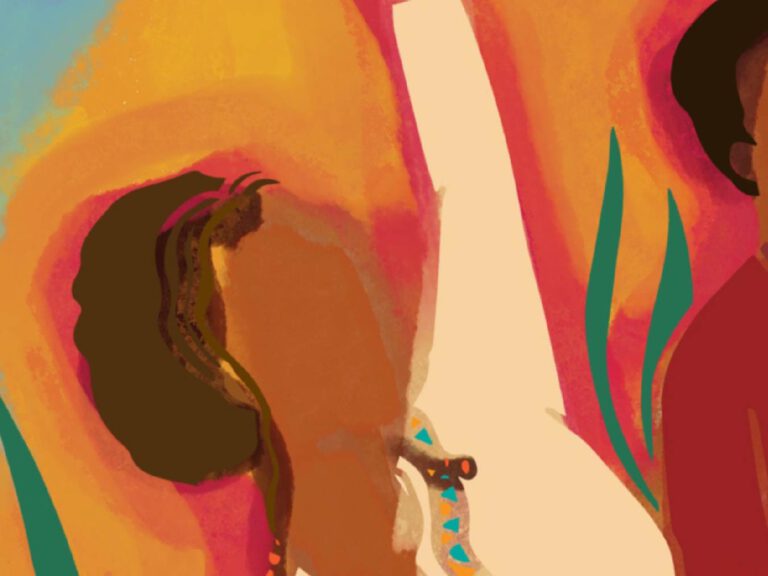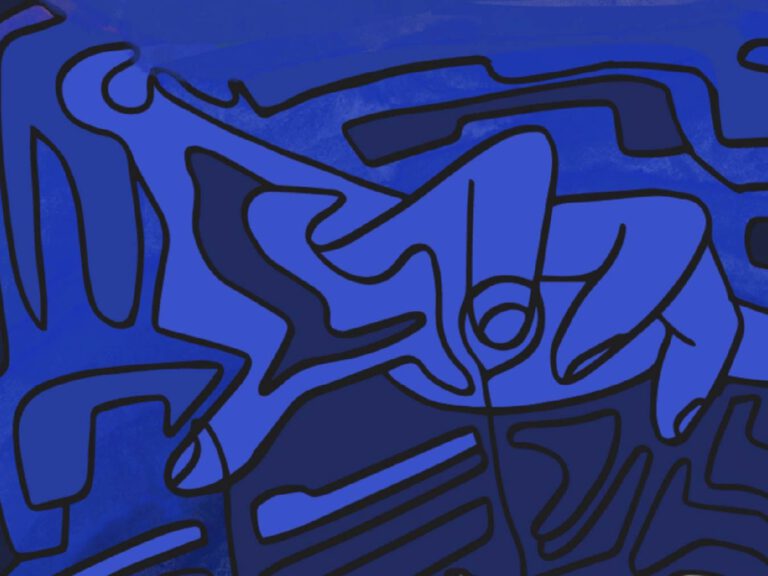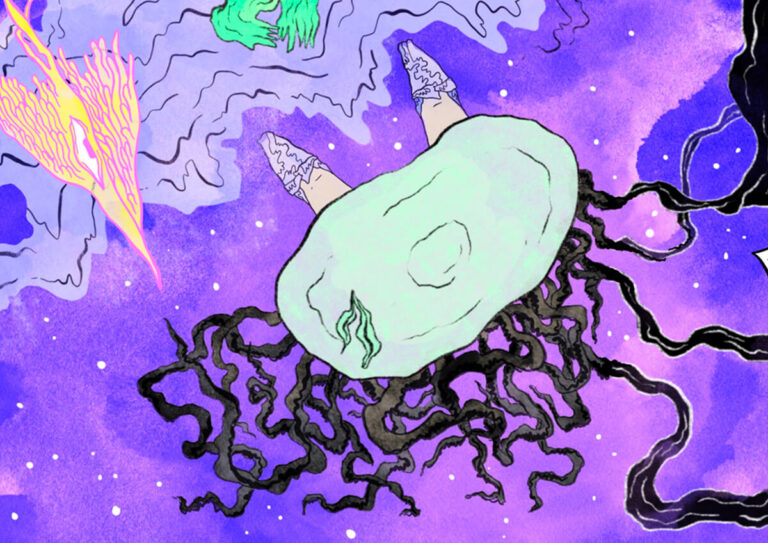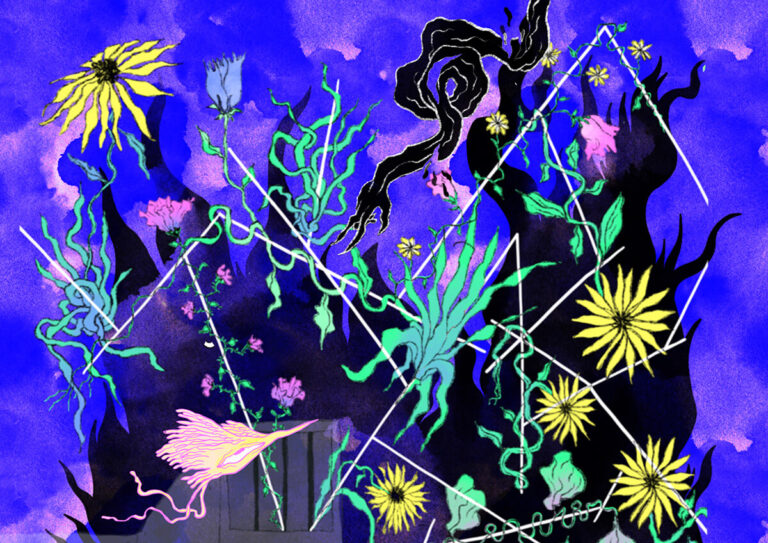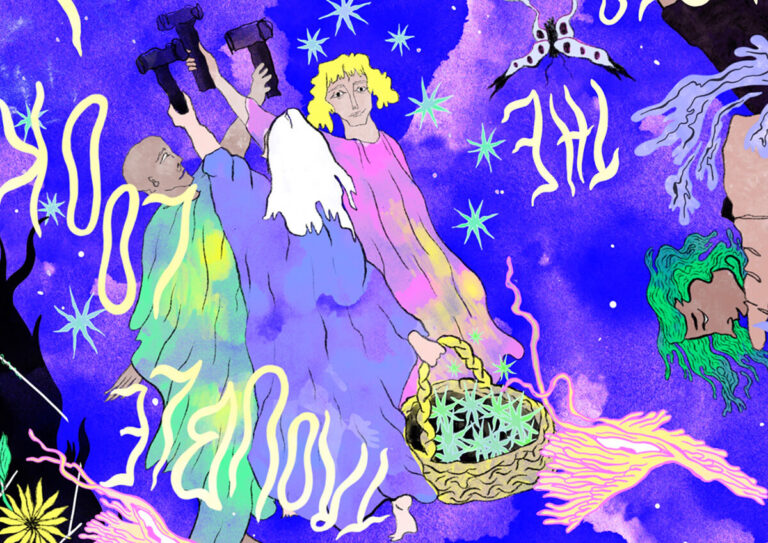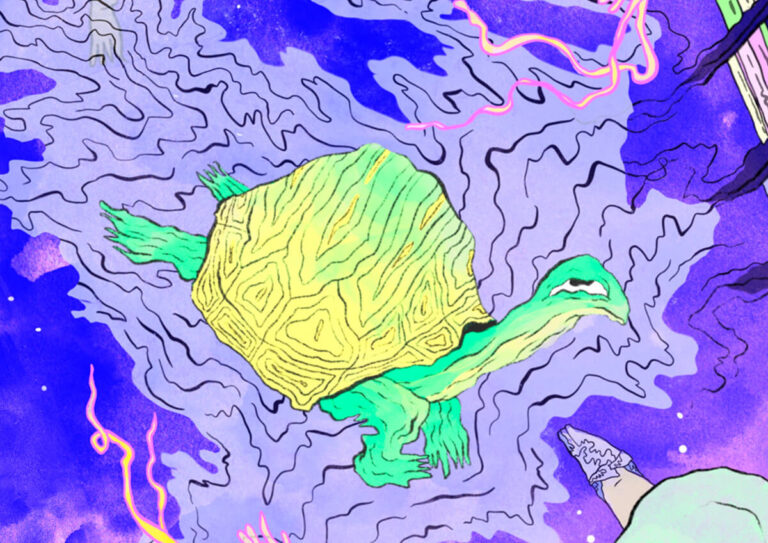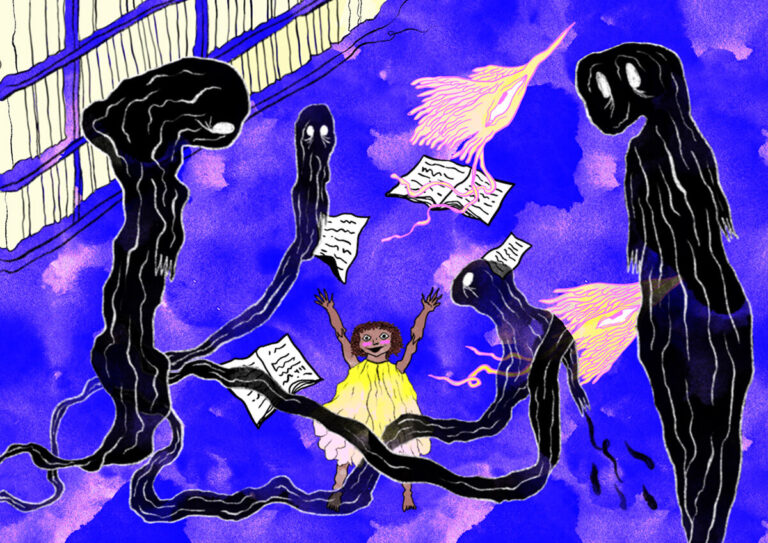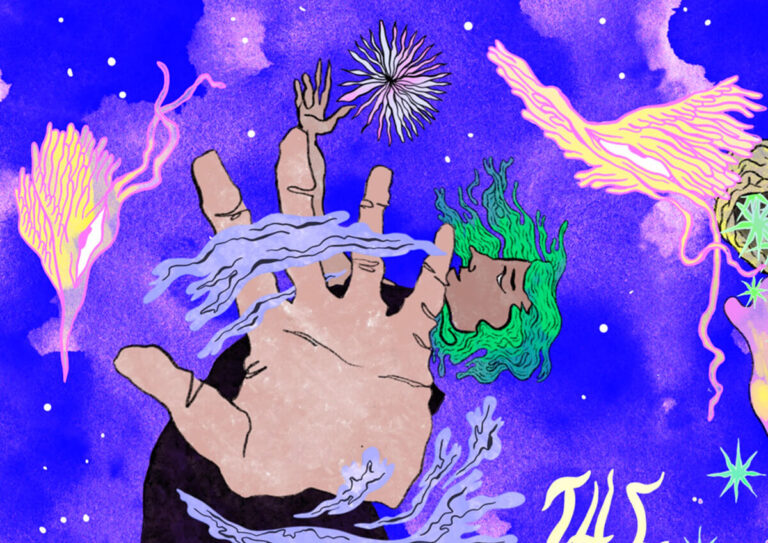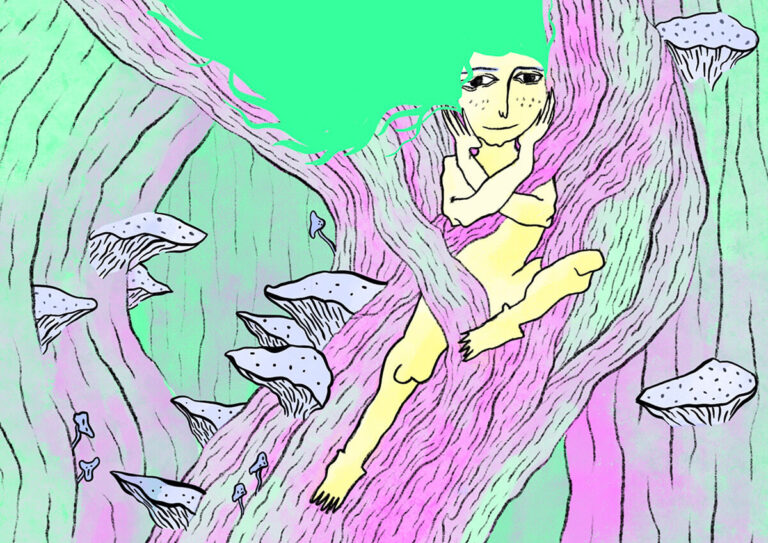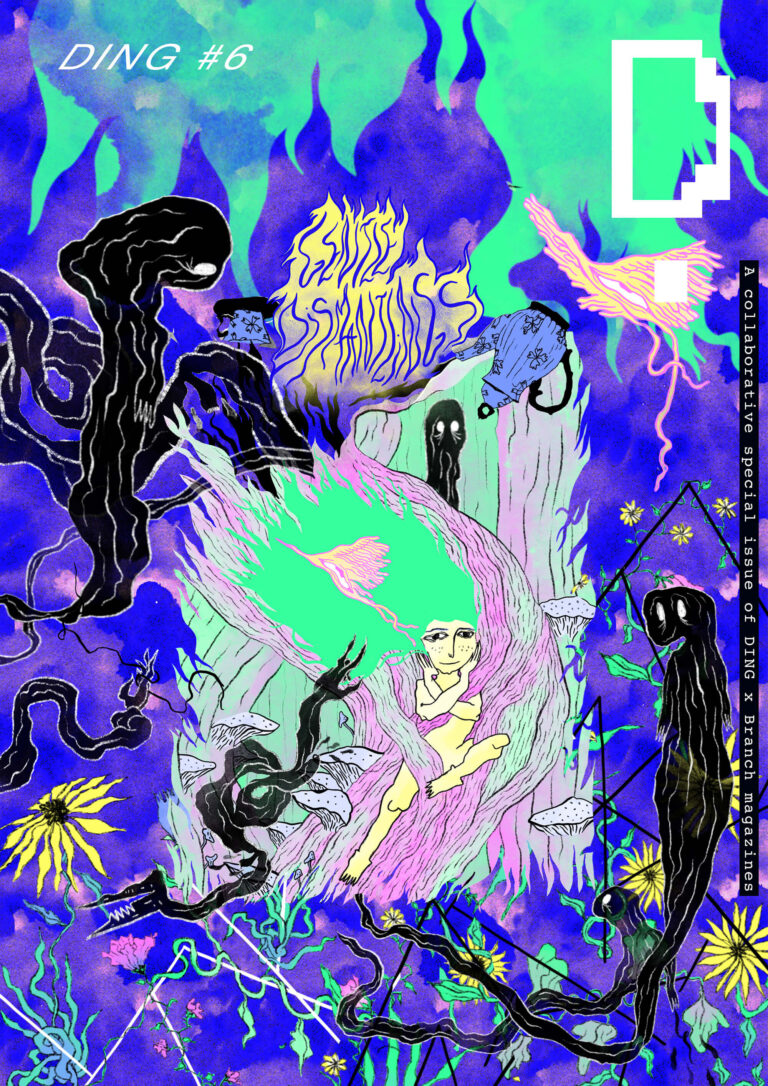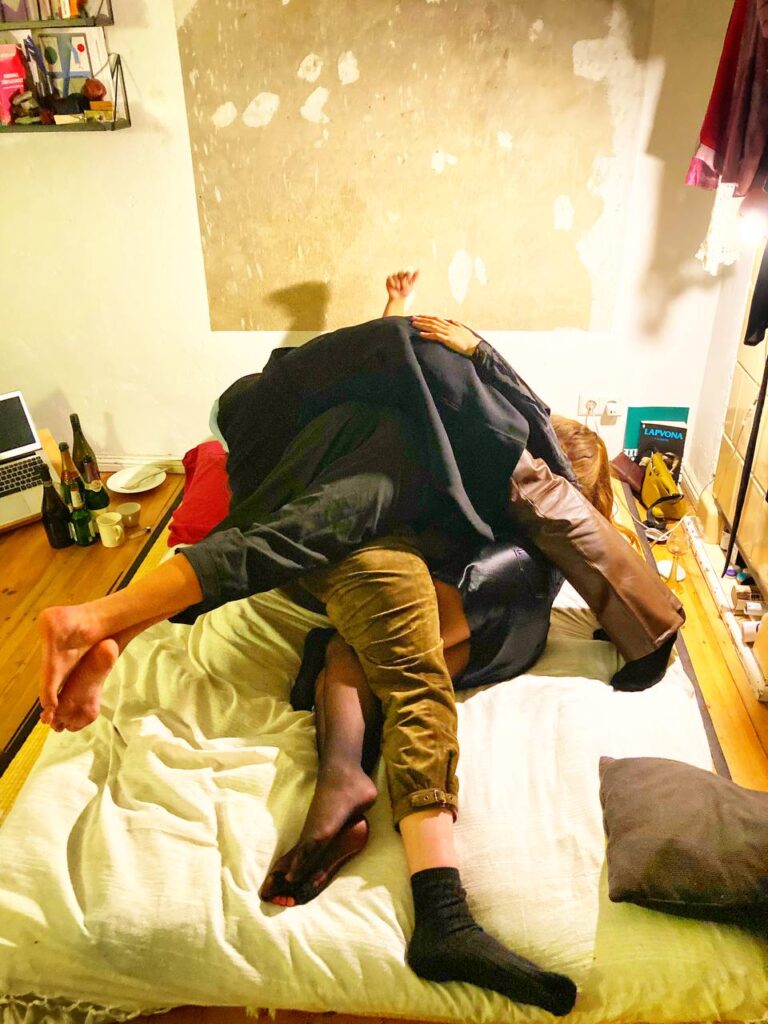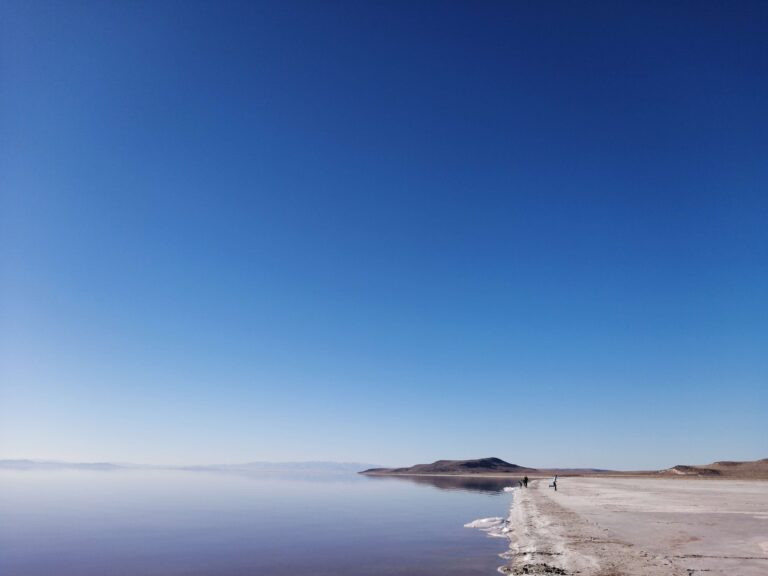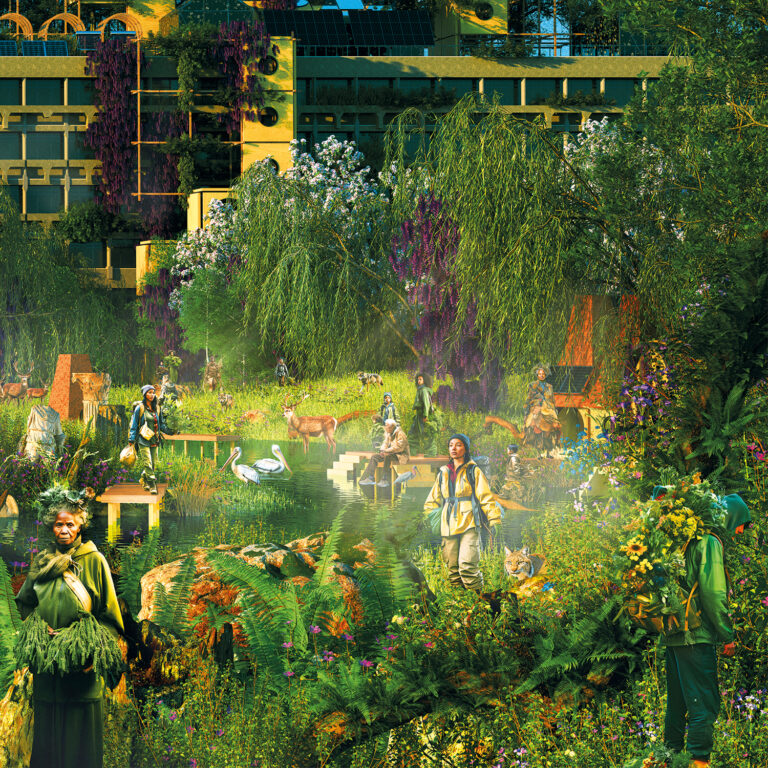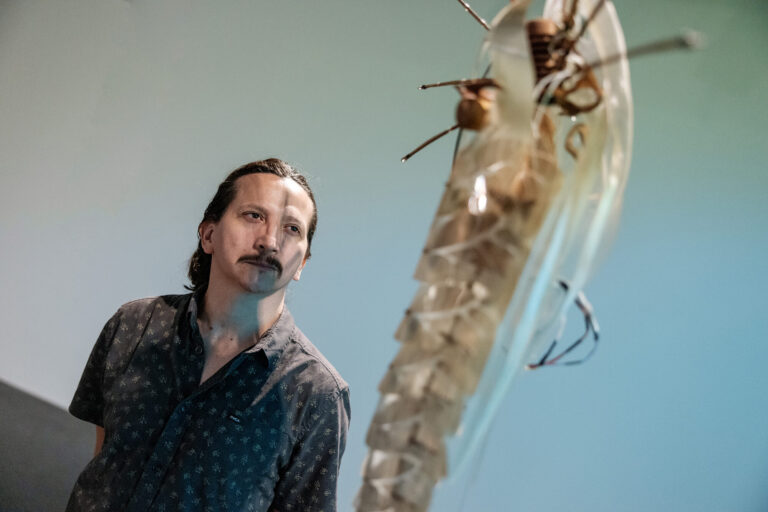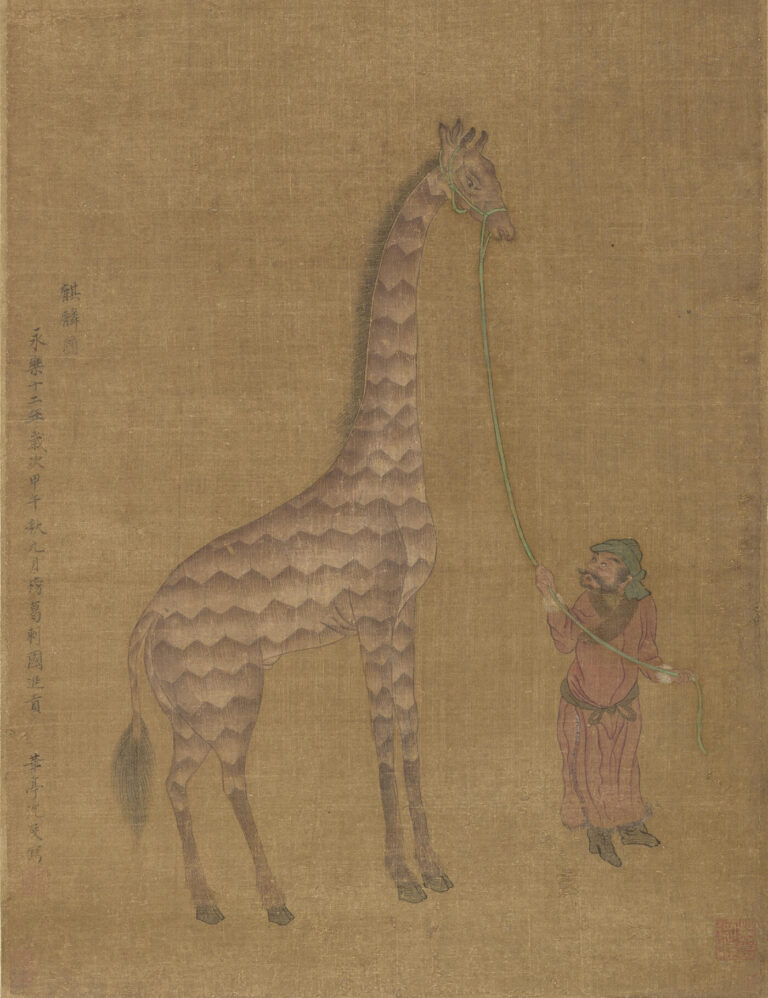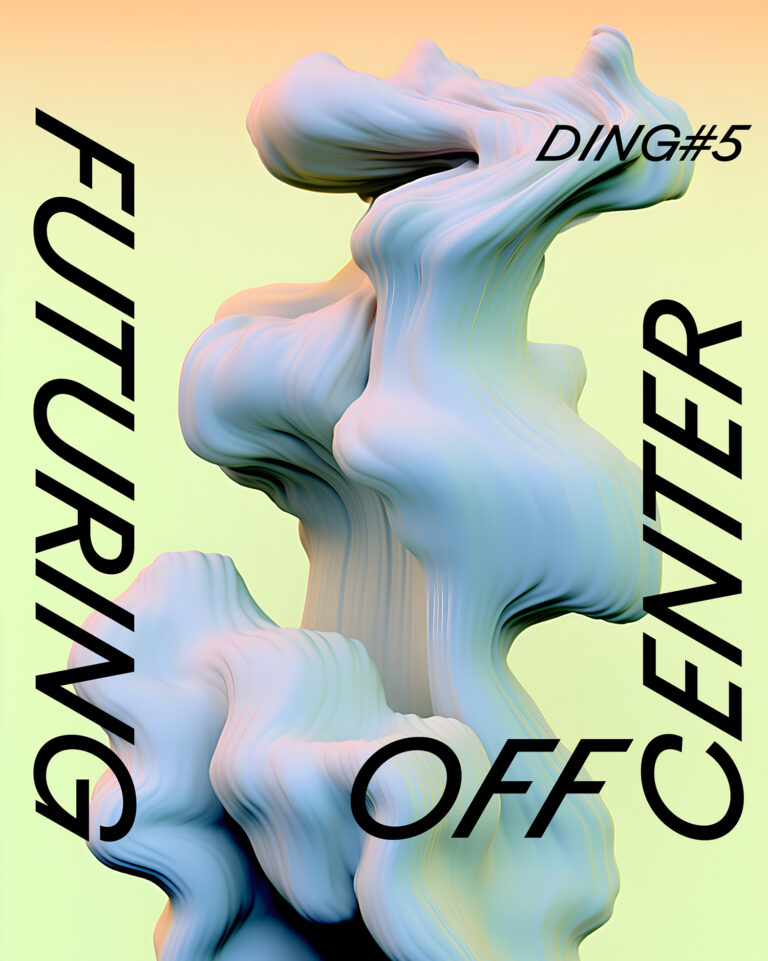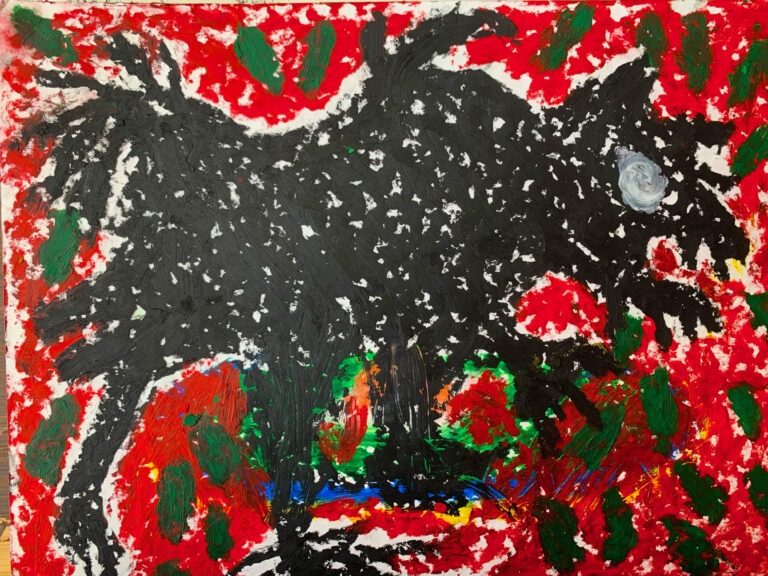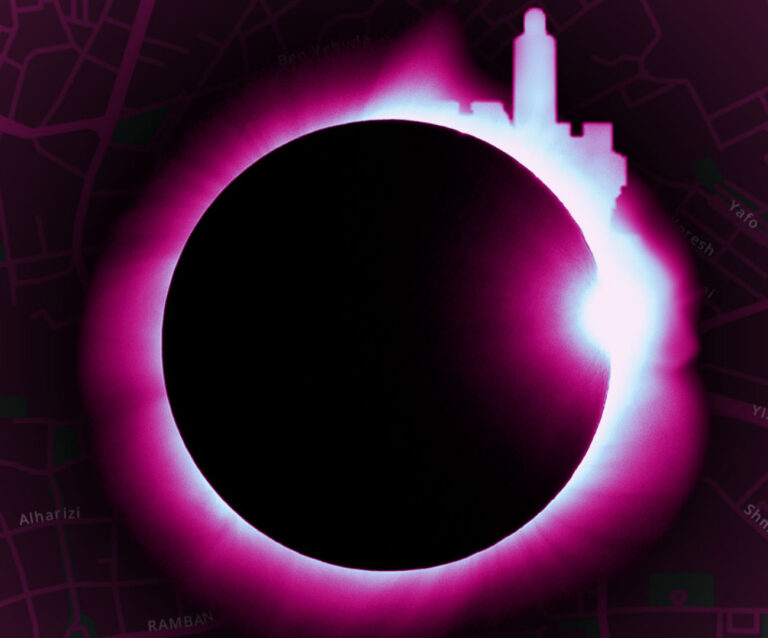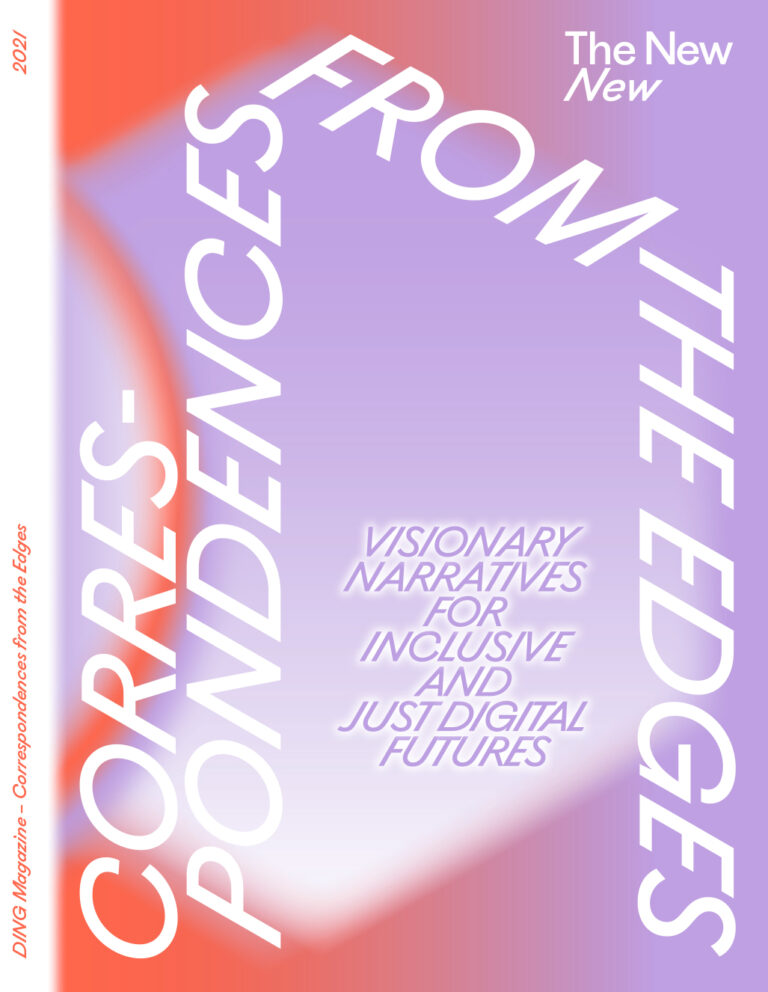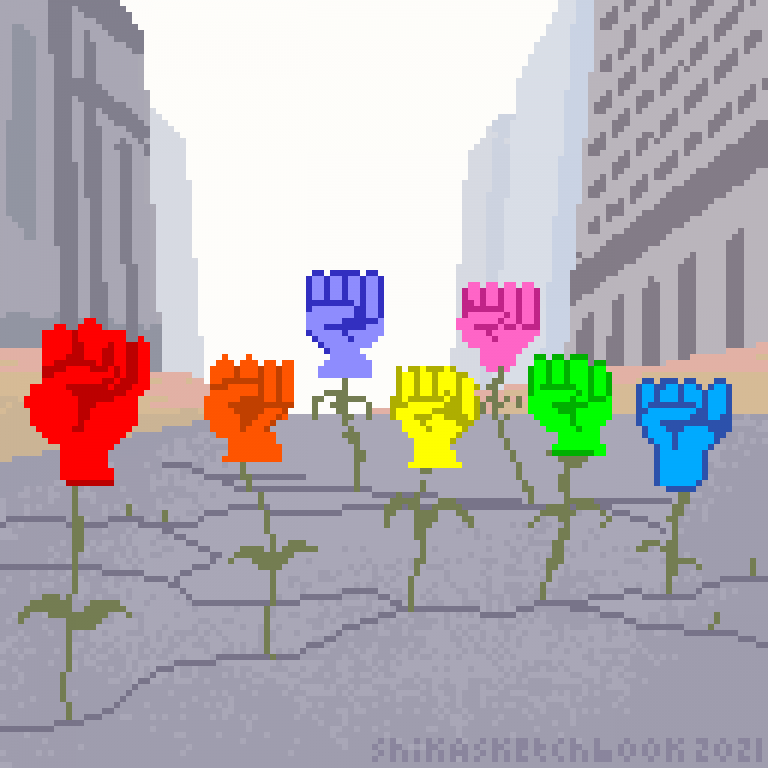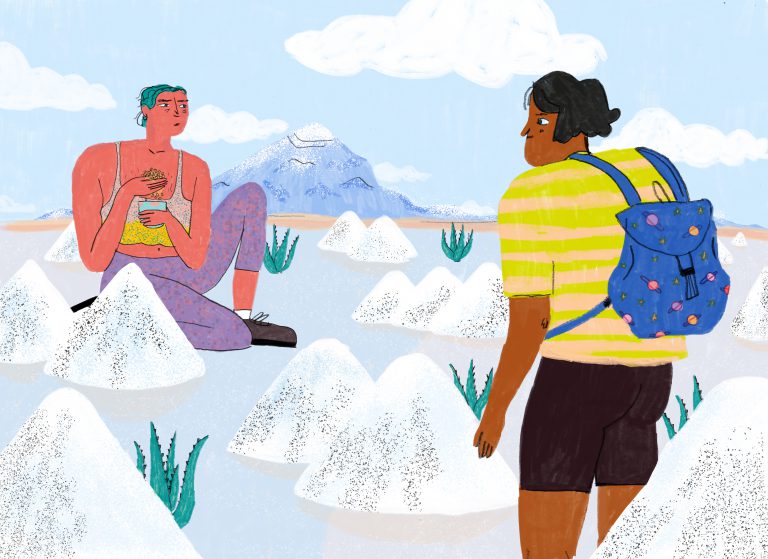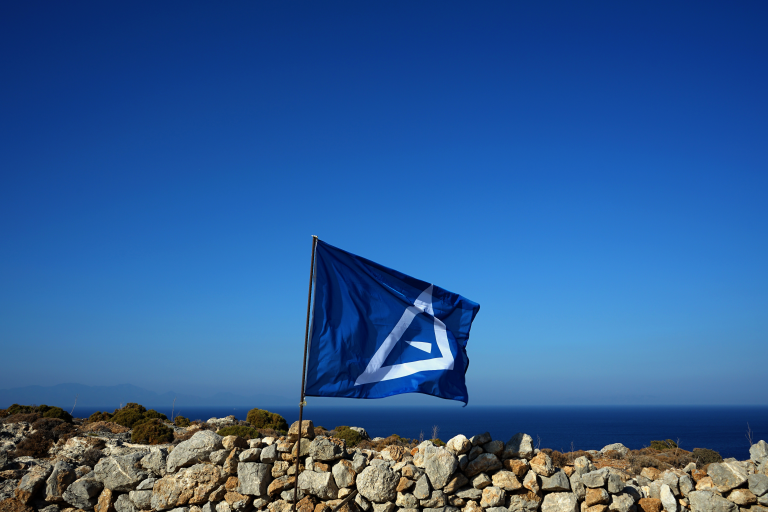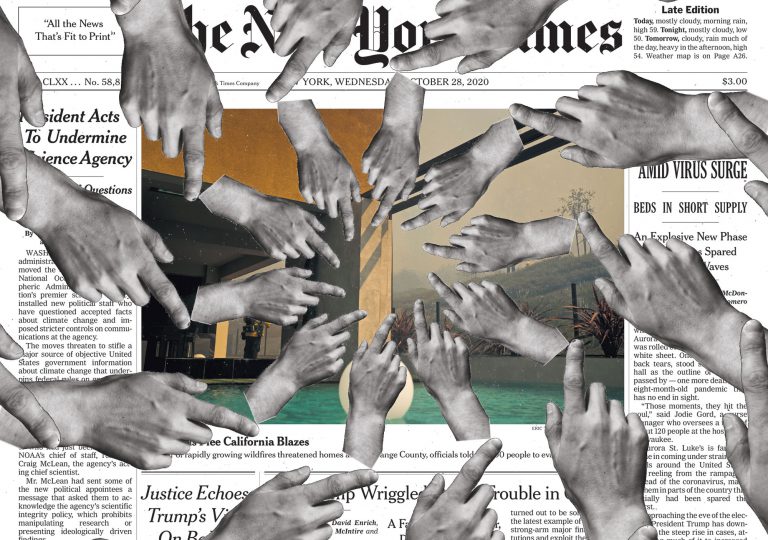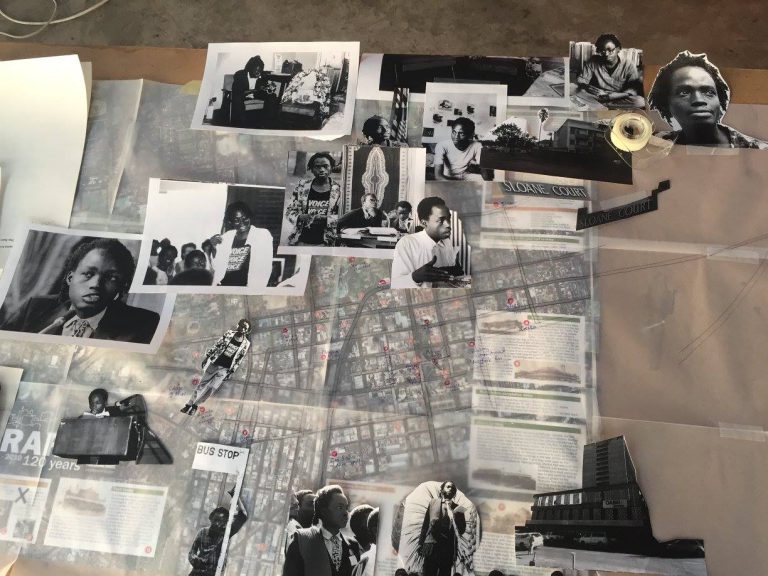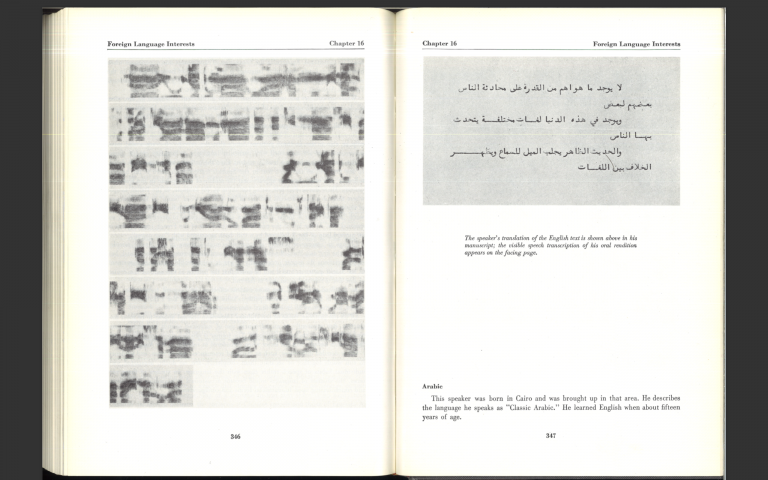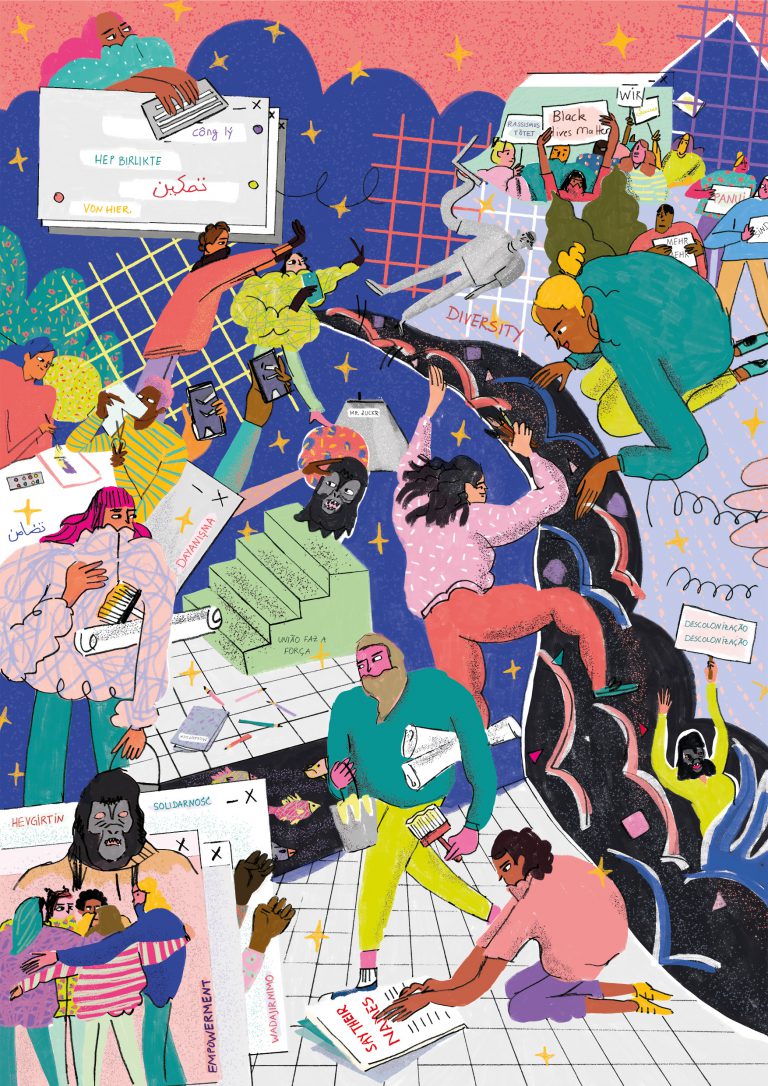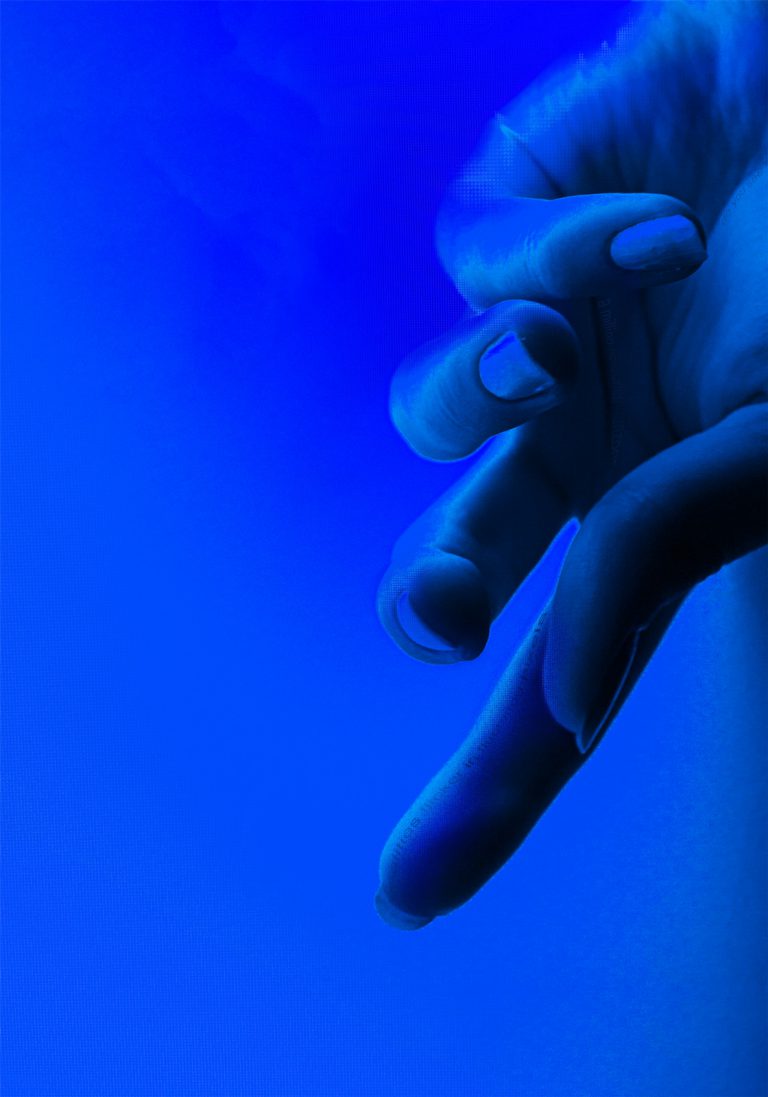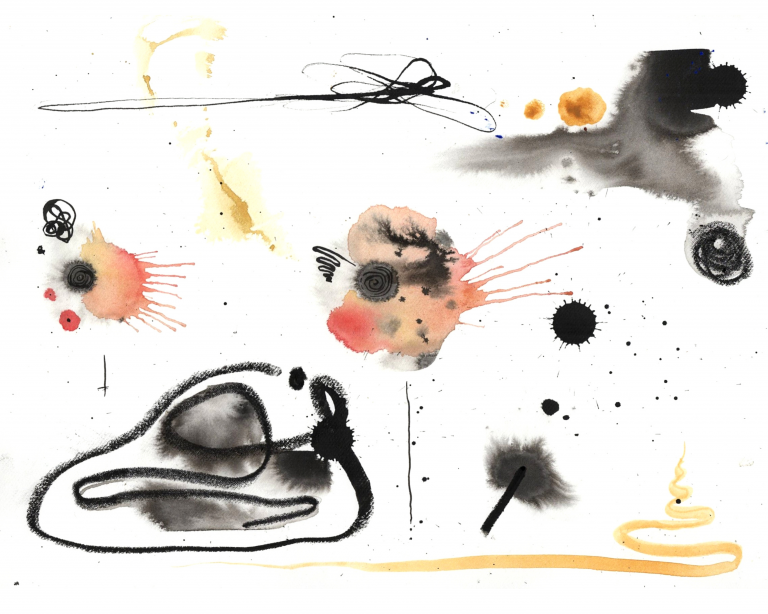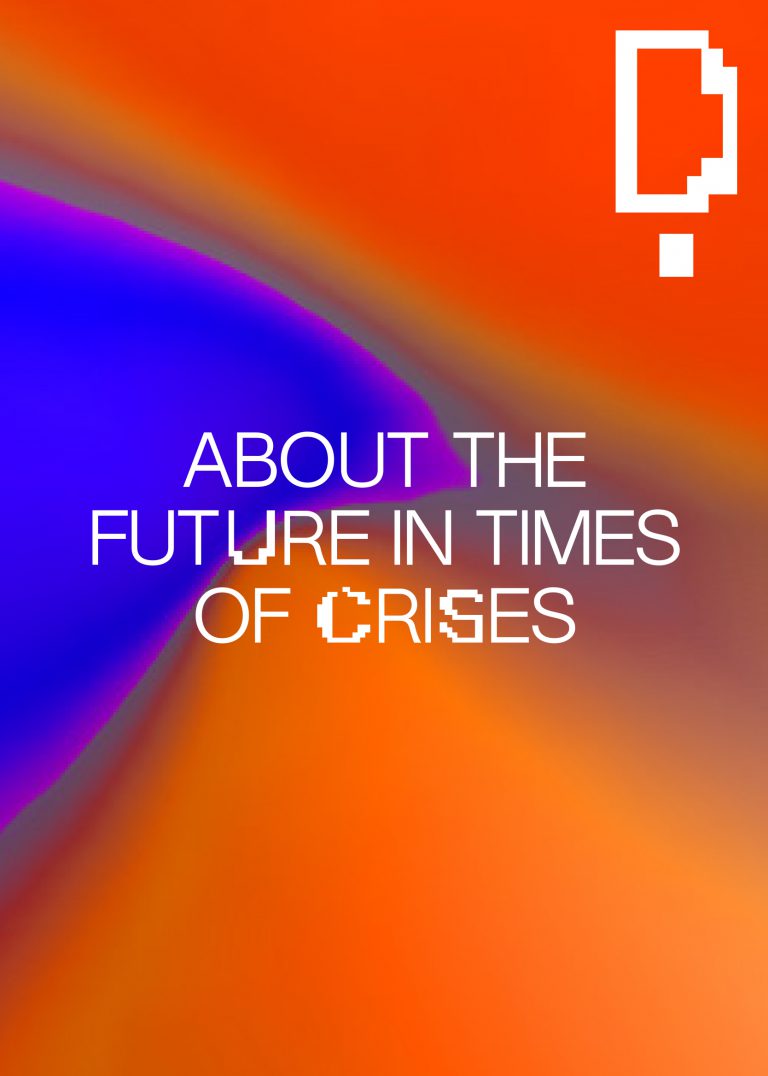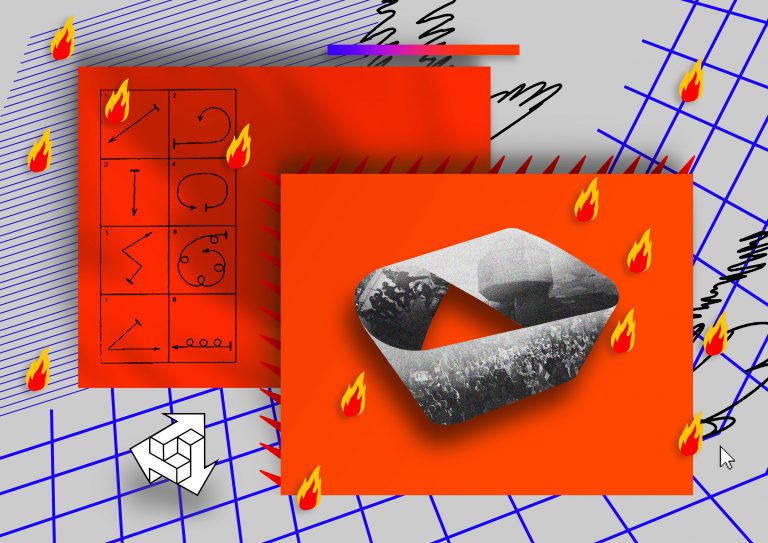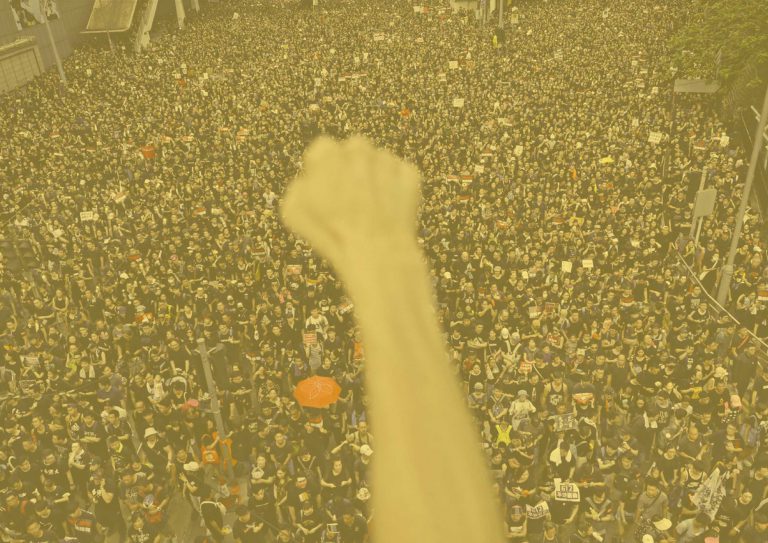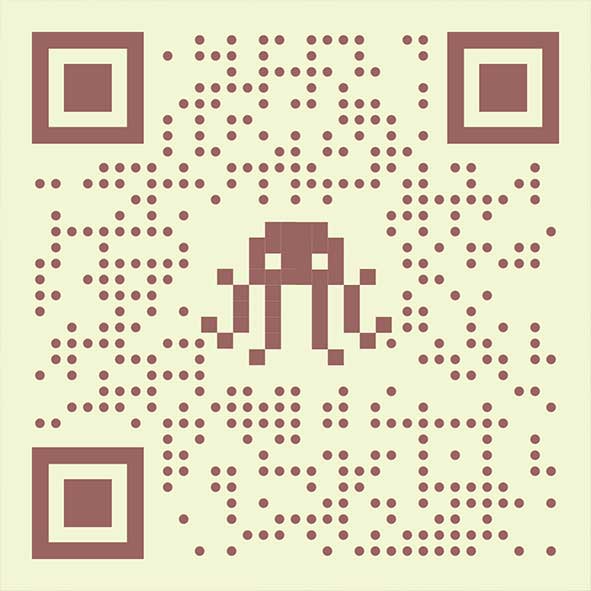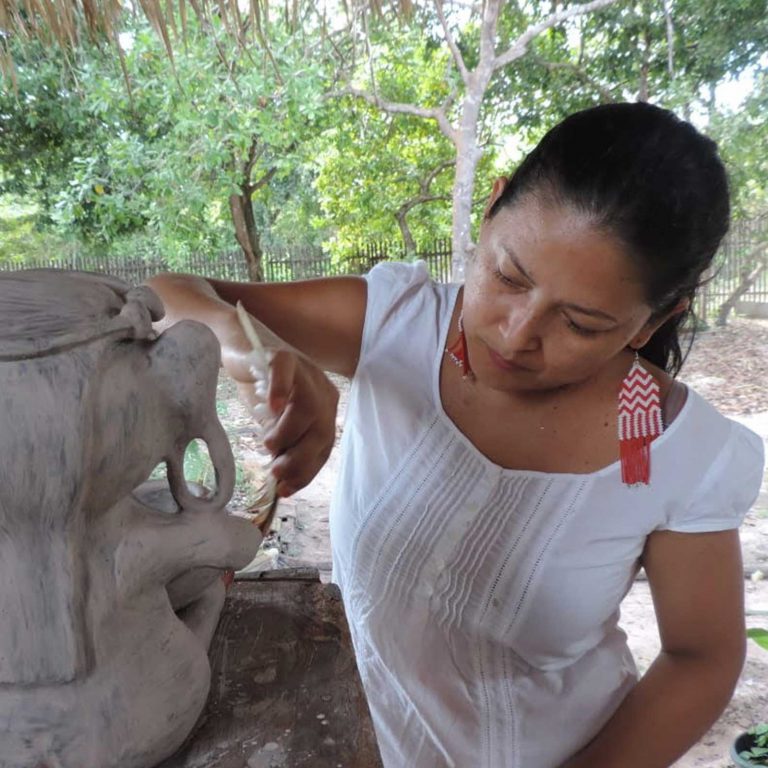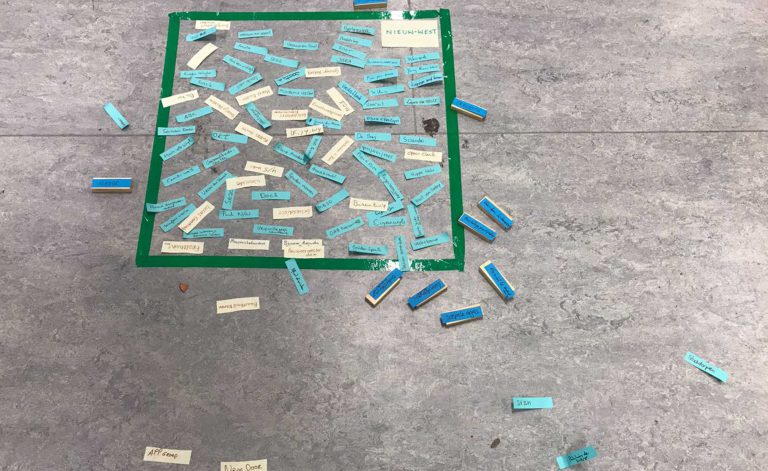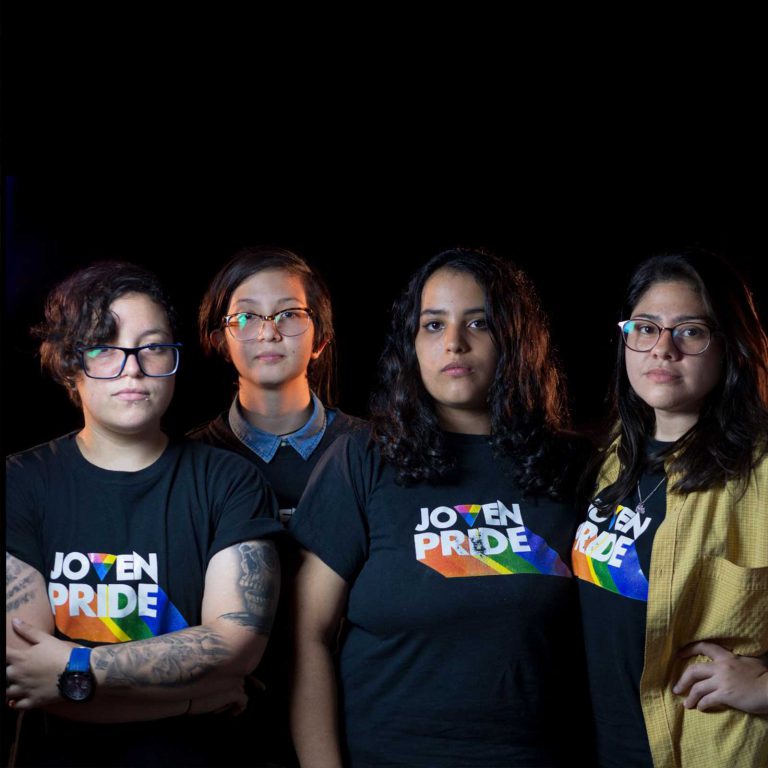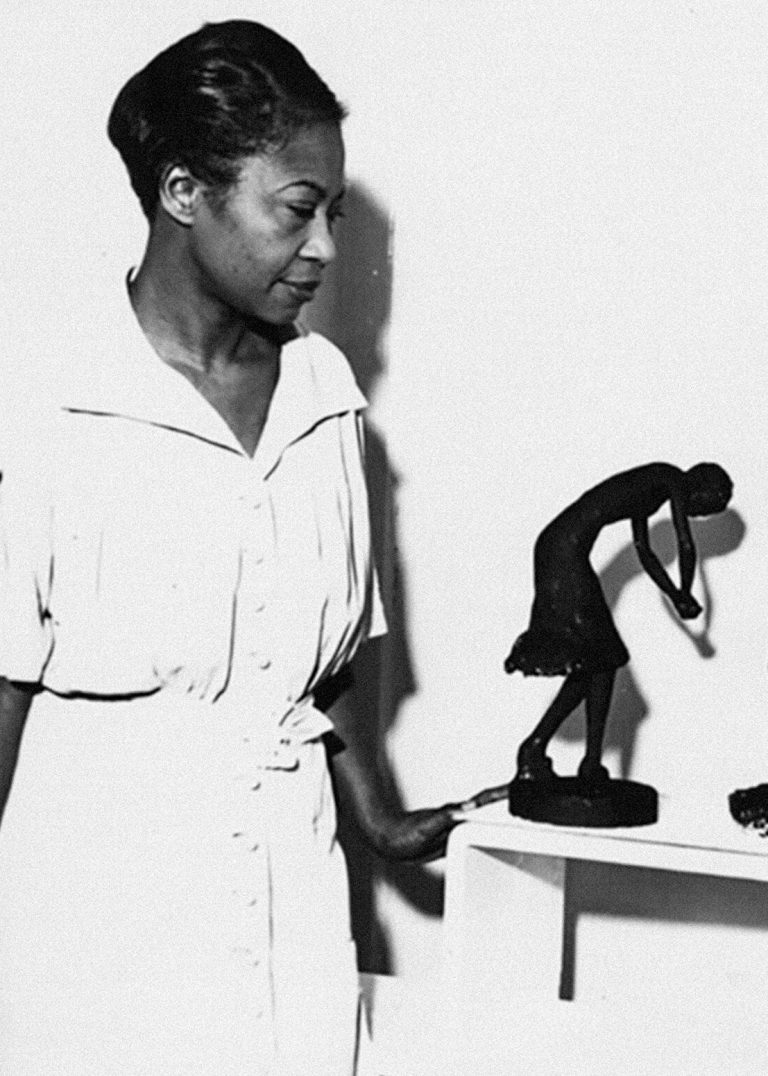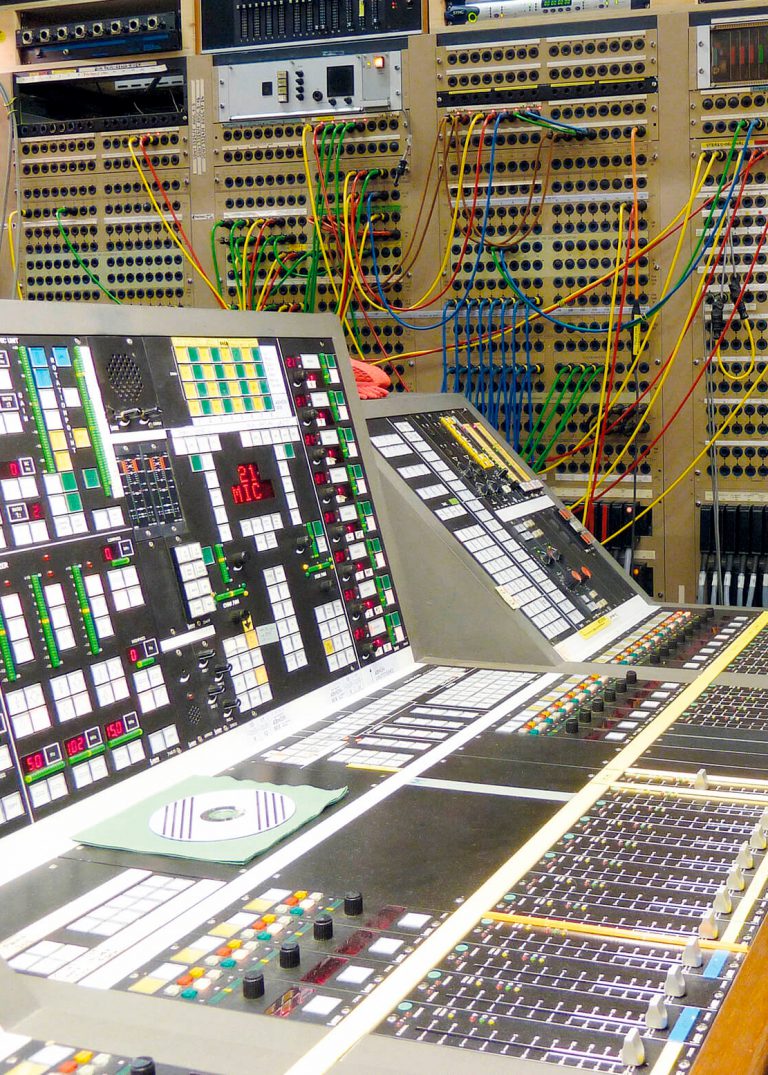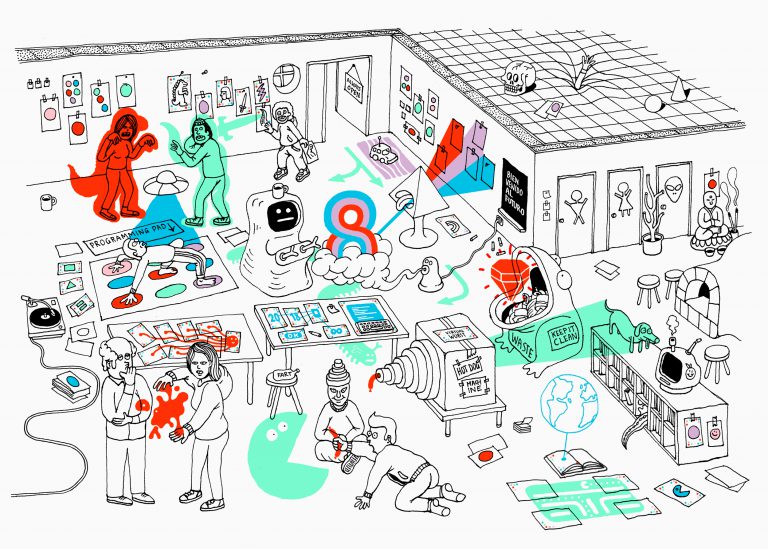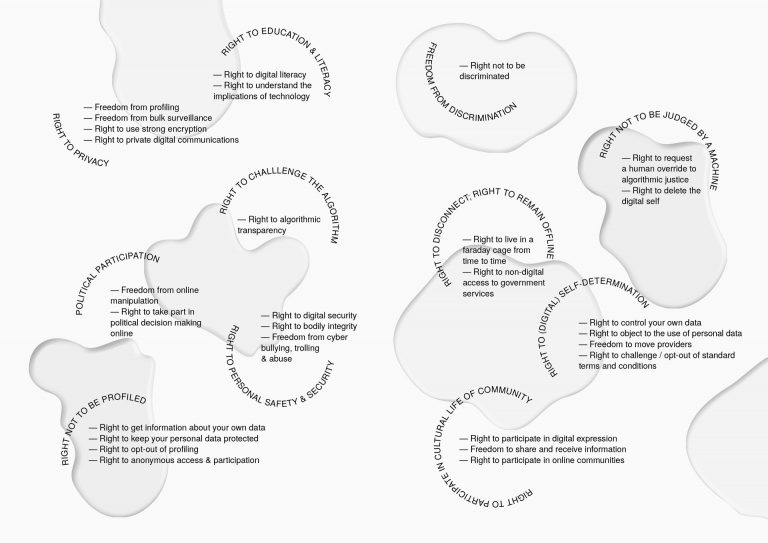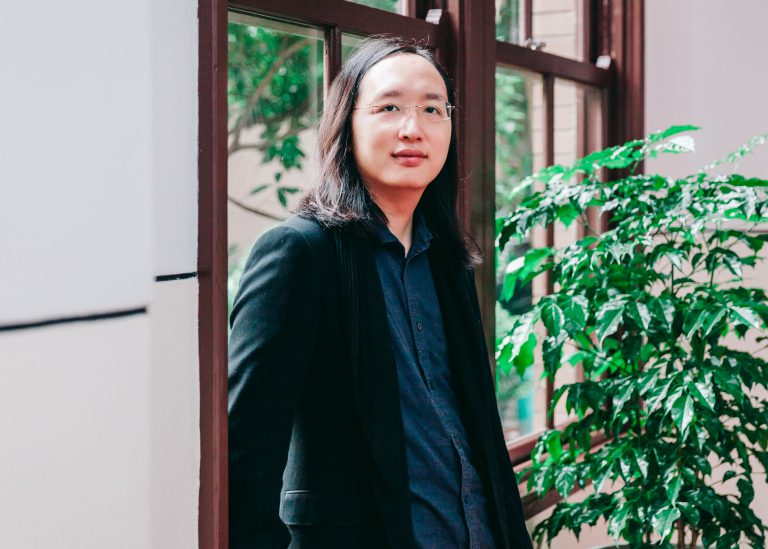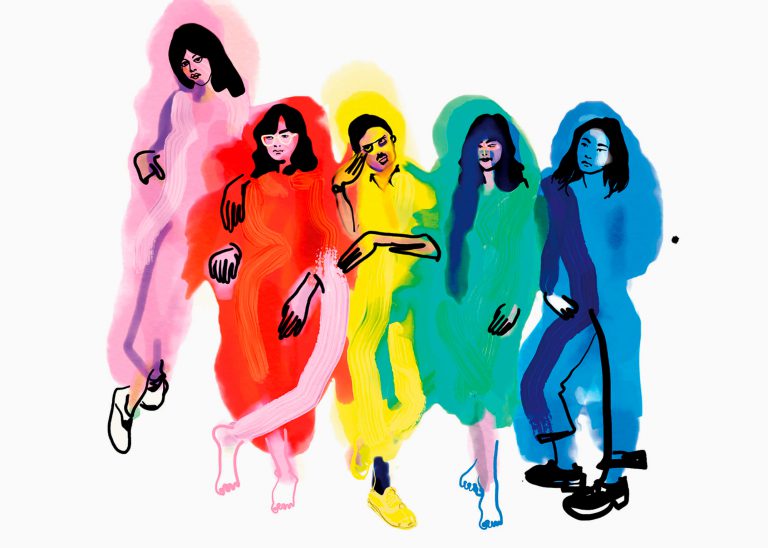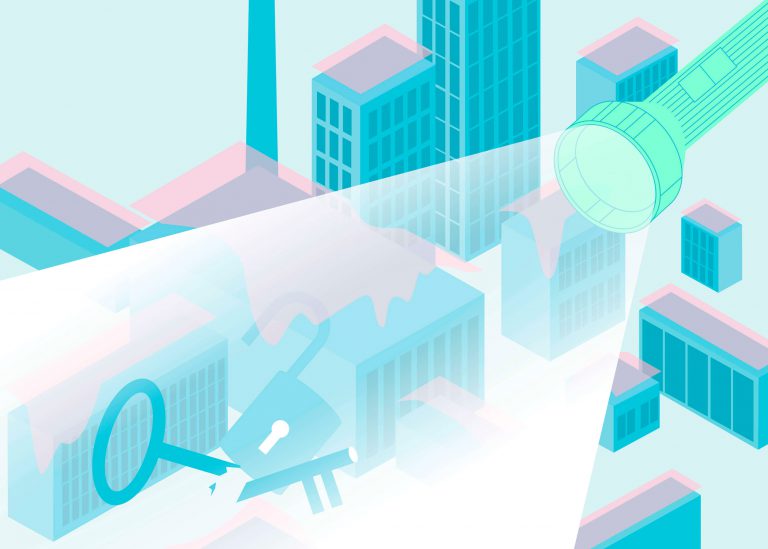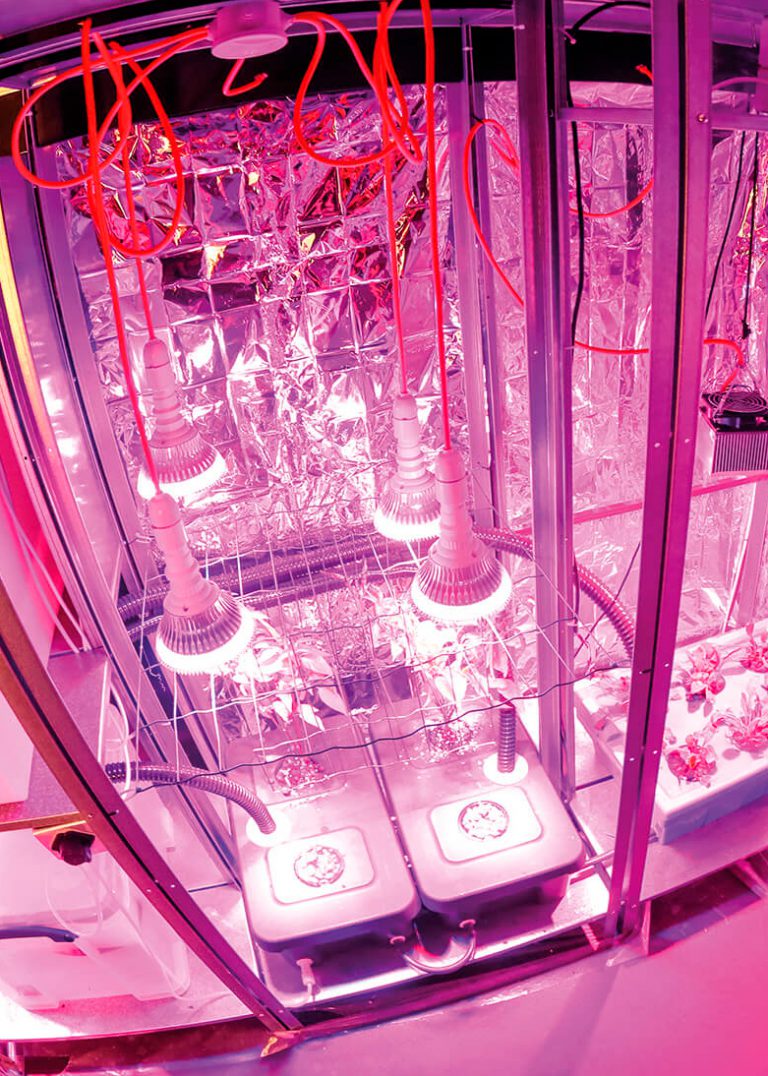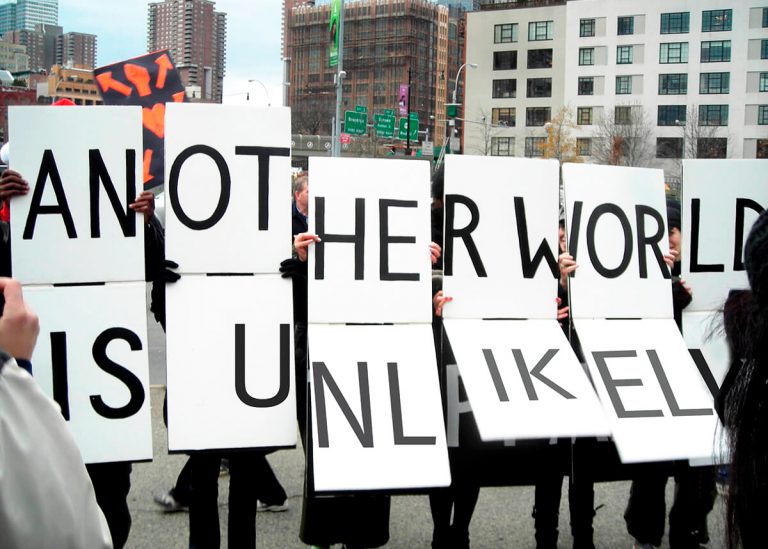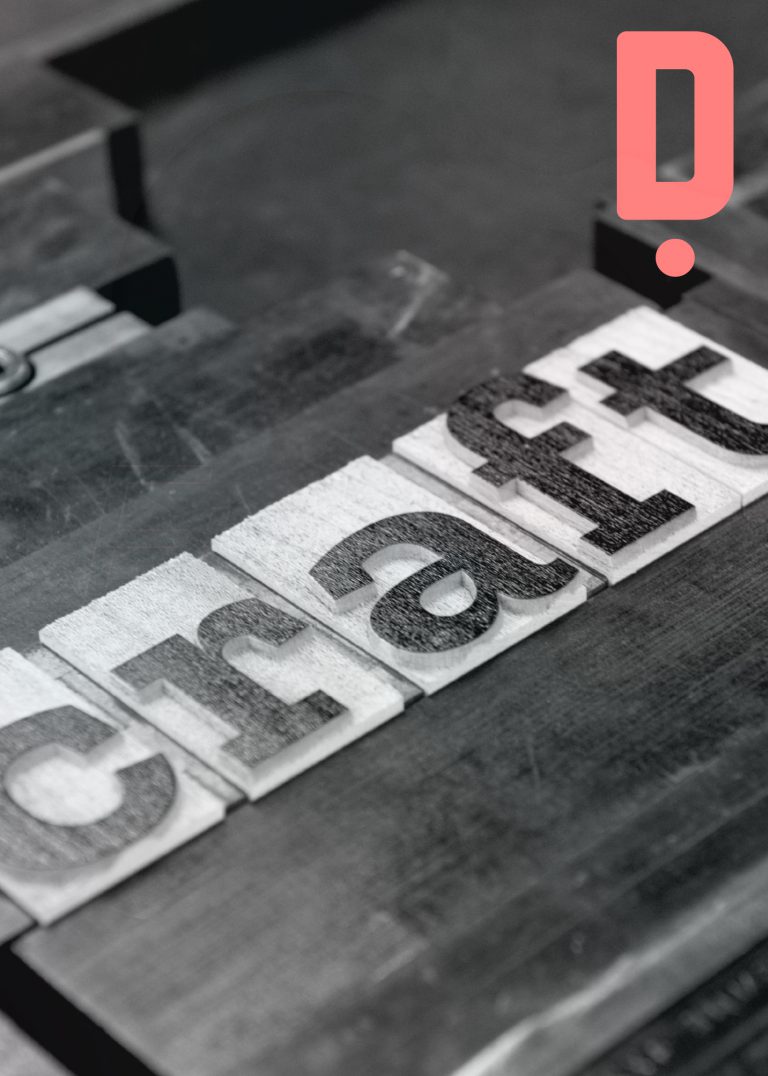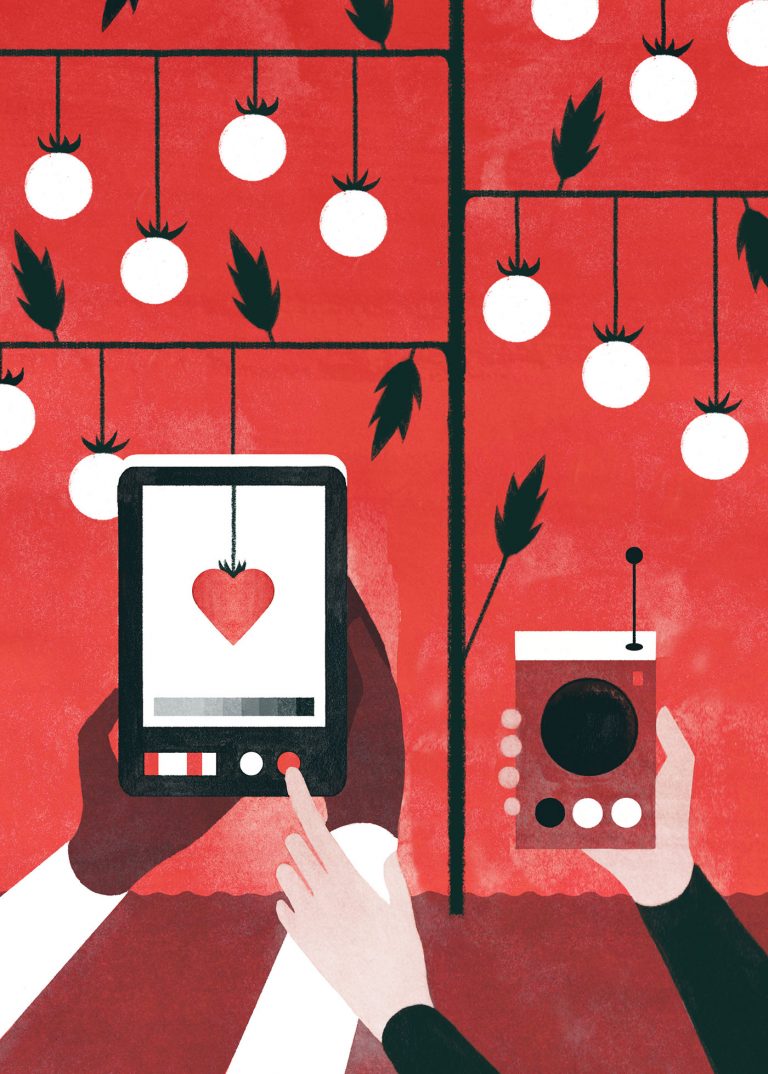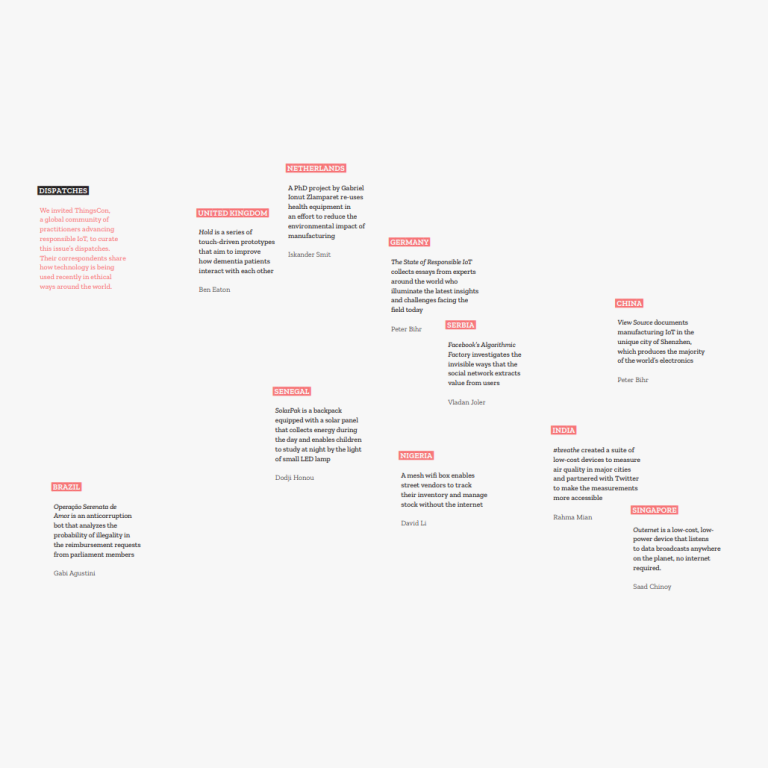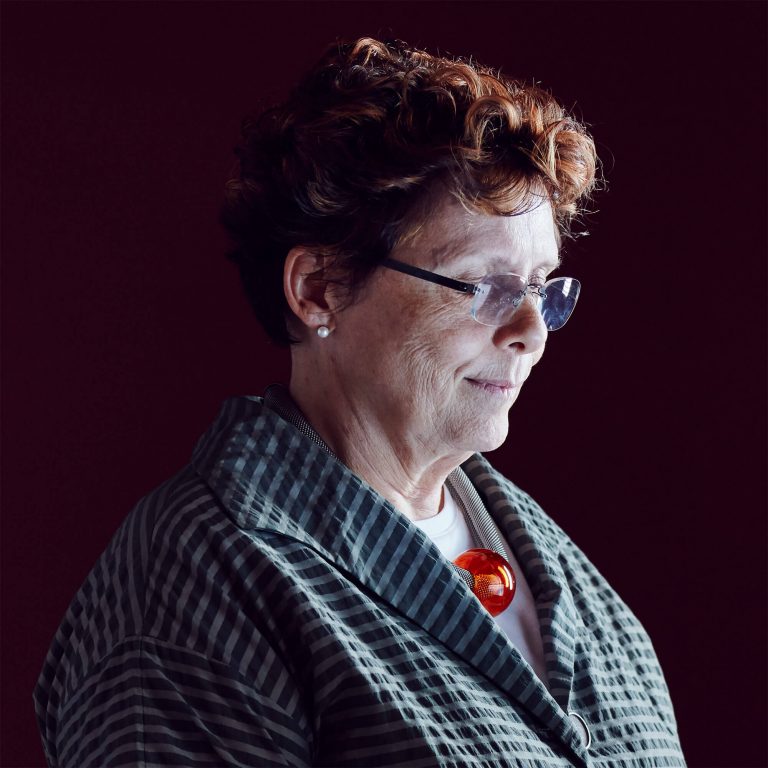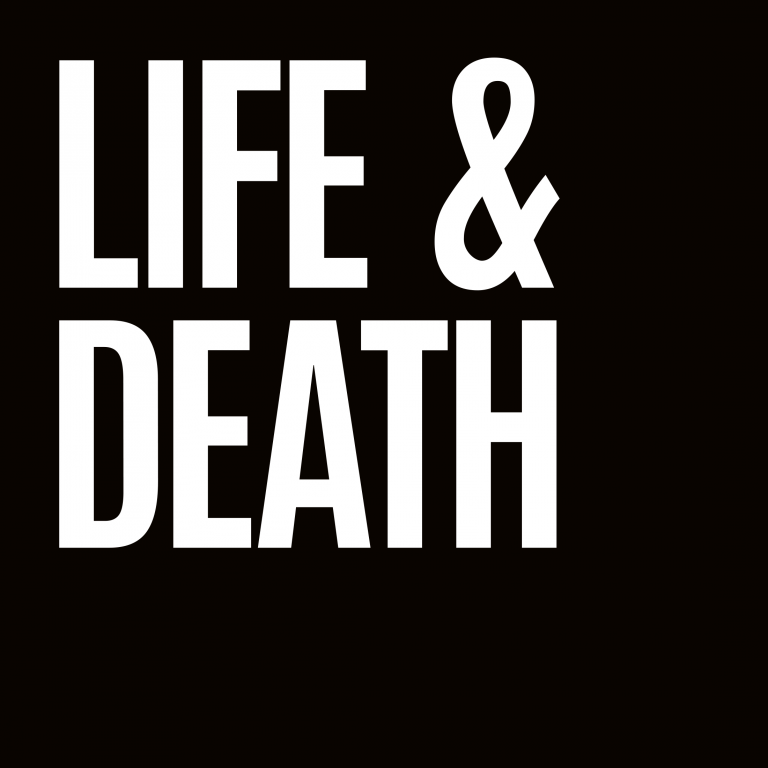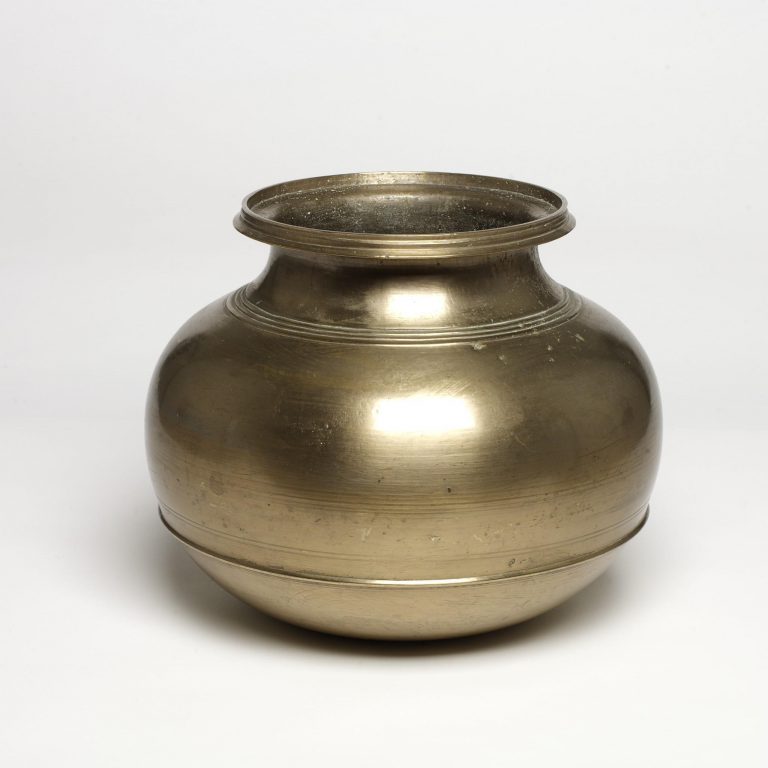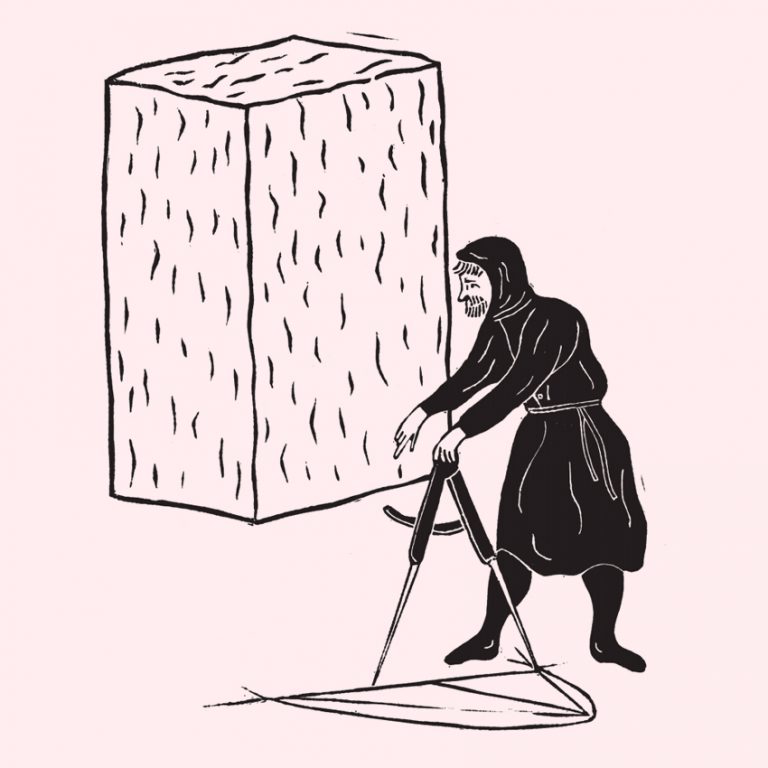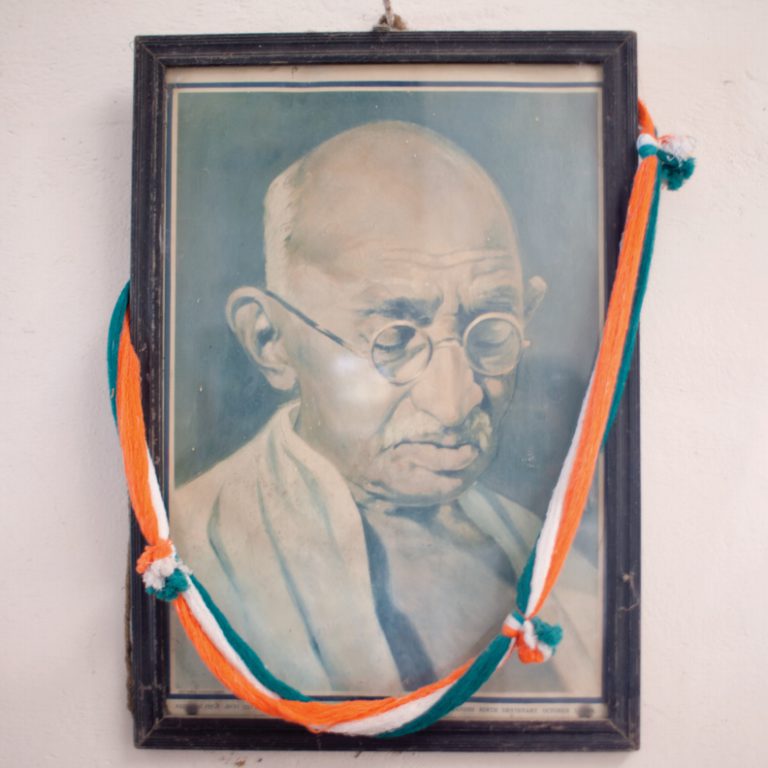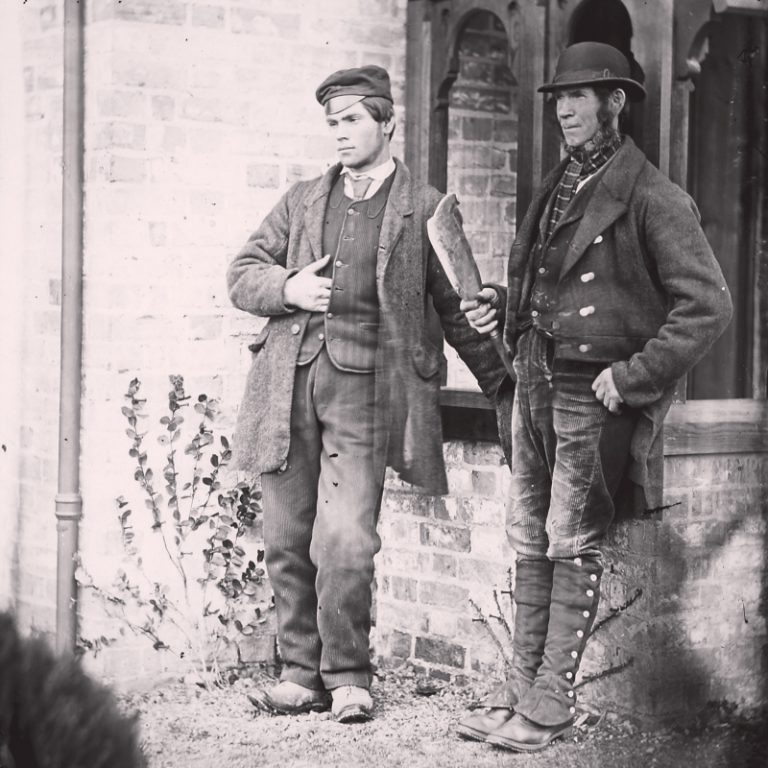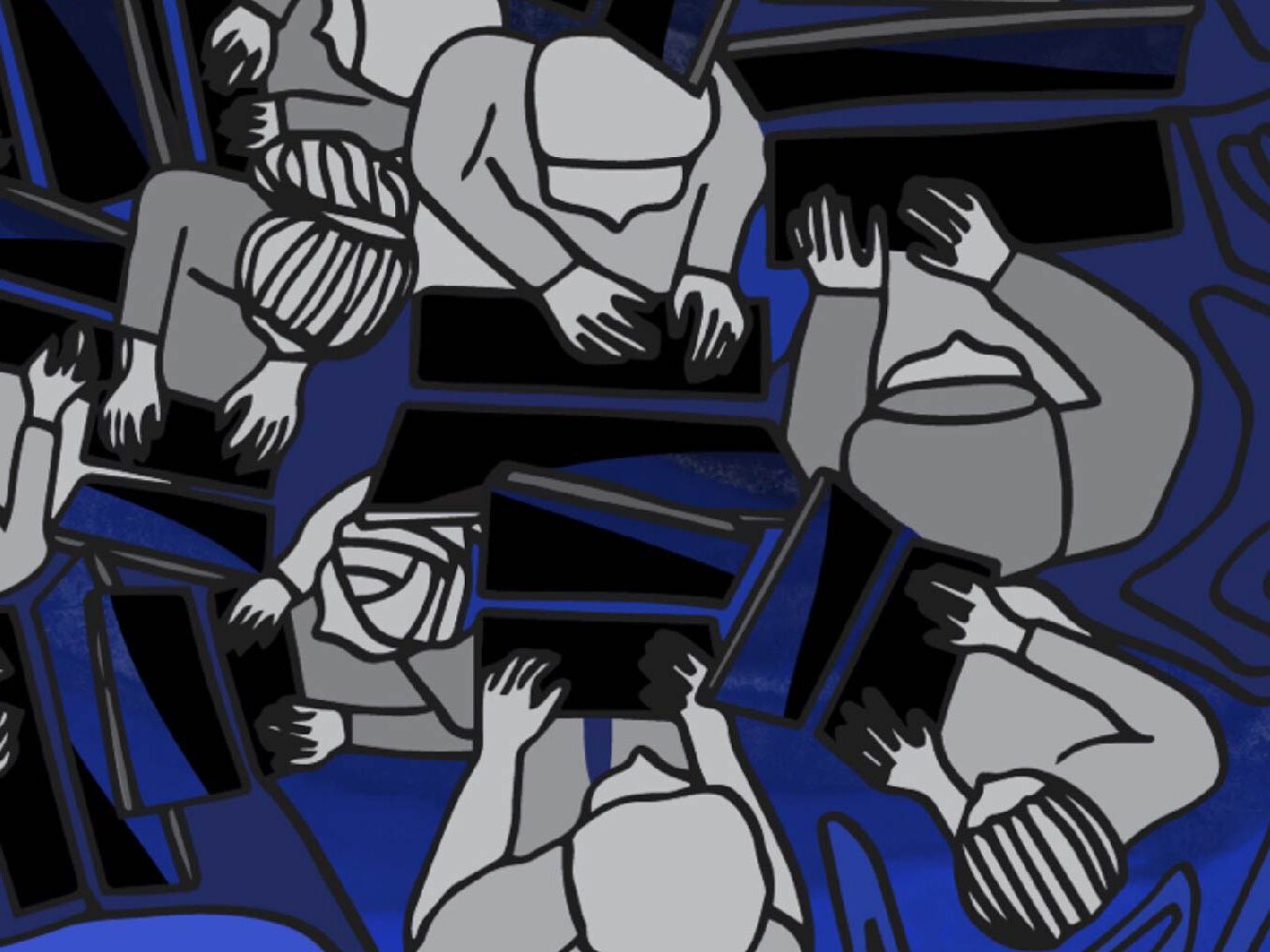
Julia: Let’s dive right in. What did you do before you moved to Kenya? How did you learn about the content moderation job and what made you take it?
Kauna: I came to Kenya in September 2018 for my master’s degree at United States International University Africa, an American university here. Before, I was working in Nigeria in a government office. Around February 2019, someone reached out to me and told me about a translation job in Hausa, which I speak, at an NGO. After sending my application and an interview, I got the job. I thought it was a good option to help with the bills, while I did my master’s.
Julia: How did you find out what it actually was about?
Kauna: During the training they said I would be reviewing content in Hausa to determine its accuracy. However, when I received the contract, it stated ‘content moderation’. I searched online for what a content moderator does but found no clear explanation. It wasn’t until the training that I realised the job entailed more than just translation. We noticed an ‘F’ logo in the office corridor and were instructed not to take photos there. This ‘F’ represents Facebook, revealing that they were our client. Shortly after, we were asked to sign a non-disclosure agreement. Everything progressed very quickly. Based on what we saw during the training, the job seemed manageable. The training examples were presented in black and white. Some images depicted blood, but in this format it was black and white or blurred. They explained the procedure if we encountered blood in an image. However, these were mostly still images, not videos. The black blood was less realistic, and we were told such examples were rare. I was led to believe the job would be straightforward. We had not fully grasped what our duties would entail.
Julia: At what point did you understand the full extent of the job?
Kauna: Almost six weeks or so after we started. In the beginning it was just profile pictures that were reported. You’d rush to get a lot of tickets done in the first hour, because after that the queue would be empty. Sometimes we wouldn’t receive any content for the whole day. It was quite nice just napping, since there was nothing to do. But after six weeks or so, the ticket numbers started increasing. Those first weeks, they started with the least violent queues. Then they opened new queues – one for violence, another for suicide. Gradually, they released some graphic content, child abuse or hate speech… At that point you’d progressed and everything started coming.
Julia: When did you realise it was affecting your mental health?
Kauna: Funnily enough, even though I have a background in psychology – I was studying it – I didn’t even know I was experiencing mental health challenges. But then I started having panic attacks, anxiety. I’d feel cold all of a sudden and faint. Whenever I’m stressed, my blood pressure drops. I thought it was due to the stress of balancing work and school or that maybe with my move to Kenya the change in weather was affecting me, that I was having seasonal depression.
I didn’t really connect it with my job, but then it became worse. I developed asthma and had to use an inhaler to breathe. I did all the tests available at the hospital, including a CT scan, but they couldn’t diagnose what was wrong. The doctor prescribed me an antidepressant, to help me sleep since I was suffering insomnia, and I lost weight. I weighed 46 kg or so. If I showed you a picture, you wouldn’t believe it’s me. The picture – it’s not me at all. After taking the medication for a week, I could sleep again. I returned for a follow-up appointment and was referred to a psychiatrist.
I started therapy. However, during the sessions I’d be asked about my work. What work did I do? Because of the non-disclosure agreement I couldn’t tell them, so I’d say I was working with an IT company. Still, they were worried; maybe they realised there was a connection. Sometimes they would ask whether I missed my home, my country, and I started thinking it might be because of that. It was not until I realised some of my colleagues were going through the same thing, the fainting, that I connected it to the job. Someone would faint in the office and an ambulance would come.
Once it became obvious everyone was experiencing similar symptoms, we started talking about it. I considered leaving, but quitting was only an option if I had another job lined up. My parents wouldn’t have understood otherwise. I never disclosed the nature of my work to my mum, so whenever I told her I wanted to leave, she would tell me to just keep pushing on. It was difficult to explain to people, especially family members.
Julia: What did you tell your mum about what you were doing?
Kauna: I told her we were reviewing Hausa language content, the same thing they told us at the beginning.
Julia: Why weren’t you able to tell the doctors what your job actually entailed?
Kauna: The non-disclosure agreement says you can’t tell anyone about what you’re doing. When I started the job, I was about to have major surgery. I kept telling the employer that the hospital needed to know what my job was, but they wouldn’t allow it and told me I should find new doctors instead. I’d been consulting with those doctors for three or four years and they were telling me to disregard them and accept the new one they’d assigned me because they didn’t want me to disclose my work…
I was scheduled for major surgery for fibroids and had been diagnosed with an autoimmune disease, lupus. I was also seeing a gastroenterologist for digestive issues. I was seeing three to four doctors at the same hospital simultaneously. Yet, they were telling me to abandon them, along with all their diagnoses, for a new doctor. It made no sense. So, I decided to avoid telling them the whole truth in order to go through with the surgery and retain my doctors, who I trusted. After my surgery, I fell into depression and became suicidal while recovering at home, alone. It was overwhelming, and still, I couldn’t disclose what I was doing.
In 2022, after my major surgery, though I’d requested leave to recover, I wasn’t granted any, which left me without salary for two months. Additionally, I lacked sufficient medical coverage and had to upgrade my insurance to cover my medical bills, which came to over 400,000 Kenyan shillings. I went back to work just two weeks after my operation: they told me I had exceeded my leave days and I was facing financial strain as I had to pay my bills.
During Covid, they didn’t allow people with a chronic disease to work from the office because of exposure, so I worked from home. After the surgery, I was supposed to rest completely for two to three months but I had to return to the office. Walking there, sitting for a long time – after two weeks like that, a wound developed on my surgery site. You can see it formed a keloid there, because I was sitting.
At some point, I just couldn’t continue. I flew back home to Nigeria, but eventually came back and started working again. I had to walk and sit, which was not easy, and I was unwell because of stress. The lupus symptoms ramped up and I started having issues with my kidney. The medical cover provided by my employer was insufficient, so I had to pay for myself in the hospital.
Julia: A lot of the violence in our world targets women. As a woman yourself, you’ve connected with other women in the company. Do you think that this job affects women on a different level?
Kauna: Yes. Even when I’m talking about the fainting, they were all women. We’ve never had one incident that I know of, since being there, that involved a man. And then you had women having miscarriages. Women started losing weight, becoming unkempt… so many things. For the most part, the violence we saw was against women – intimate partner violence, women being stabbed. The terrorism, ISIS videos, beheadings – that was mostly men. I’ve never seen a woman in those, but when it comes to stabbing, hanging, whatever, the majority are women. Even for child abuse, mostly little babies, they are girls.
Julia: What needs to change to make content moderation safe as a profession?
Kauna: I want to base my PhD around mental health and tech workers, particularly content moderators. From my own experience, the majority of moderators are deceived into this job without being told what it actually entails. There’s not enough preparation, no adequate training. You’re just ambushed. You can’t flood someone with toxic content and believe they’re ready. Our training had nothing to do with the job.
Facebook’s policy had so many grey areas. We were always in meetings, always arguing, but we didn’t get through. This harmed people – because when you look at the African way of life, it’s not the same as in the West. Outcomes are not the same, but it’s always just assumed that what applies in the West applies in Africa, applies in Asia or America. It can’t work that way!
And they didn’t understand that the job is serious – serious in the way soldiers are prepared for war, doctors for blood. There should be a psychiatric evaluation for content moderators, though I’m sure most of us wouldn’t have qualified for the job. If you are predisposed to mental health issues, content moderation is not for you. A lot needs to be done for it to be professionalised.
When I was suicidal, I immediately told my managers, ‘I can’t do this, I’m suicidal, it’s triggering, I can’t.’ They respected that and removed me from the queue because they knew it’s my field and didn’t want issues. But colleagues who did the same were denied and told they didn’t know what they were talking about. Up to the point I left, colleagues would be chatting in the group, describing how they couldn’t sleep and asking for help.
A lot needs to be done so that content moderators know when they’re triggered, when it’s getting overwhelming, when they need a break or to step back. Therapy shouldn’t be gossip but proper therapy – a constant evaluation of how you are doing, how you are progressing, whether you need to stop. There should be structures around this.
Julia: You were a content moderator for four years and you left the business a year ago now. You also moved back to Nigeria. How did you realise how you changed in that time, and how is it still affecting you?
Kauna: I might feel like I’m at home, but it’s not easy. I feel overwhelmed around too many people. I get easily irritated and I just want to be alone. In Kenya, I could stay in my room for weeks at a time, doing virtual calls, but at home in Nigeria, I’m dealing with people every day. I have to interact, even when I don’t feel like talking. My mum has found it difficult and told me that if I continued like this, no one would want to be around me. When she said that, I realised it was time for me to give her some rest.
Julia: As a final question let’s talk about the future. What are your next steps, your plans or your aspirations?
Kauna: I’m trying to motivate myself because, for the longest time, I haven’t felt that. I forget things easily, unlike before. If I’m not fully attentive in conversations, I get easily distracted. I also procrastinate a lot, which has made me scared about going back to study. I recently attended a feminist retreat in Uganda. The conversations we had there were truly inspiring. I felt like I was in the right place and it motivated me to do better. It was a space for women, so naturally we cried and shared our experiences. I haven’t felt that way in a very long time. At home, if I want to cry, I have to take a shower to hide it. Having the space to cry openly at the retreat made me feel much better. I shared what I had been doing, and some professors there explained that my field is new and untapped, so if I had a good idea for my PhD, I could secure a scholarship and a supervisor. When they offered their help and support, I felt that maybe now is the time, my time.

